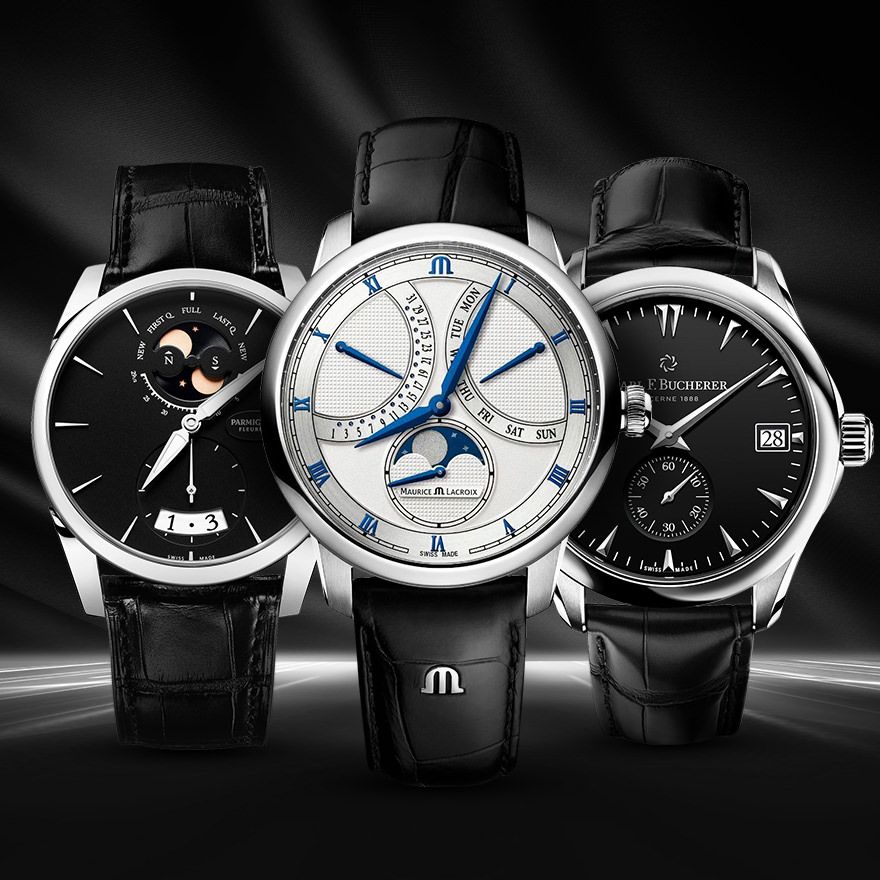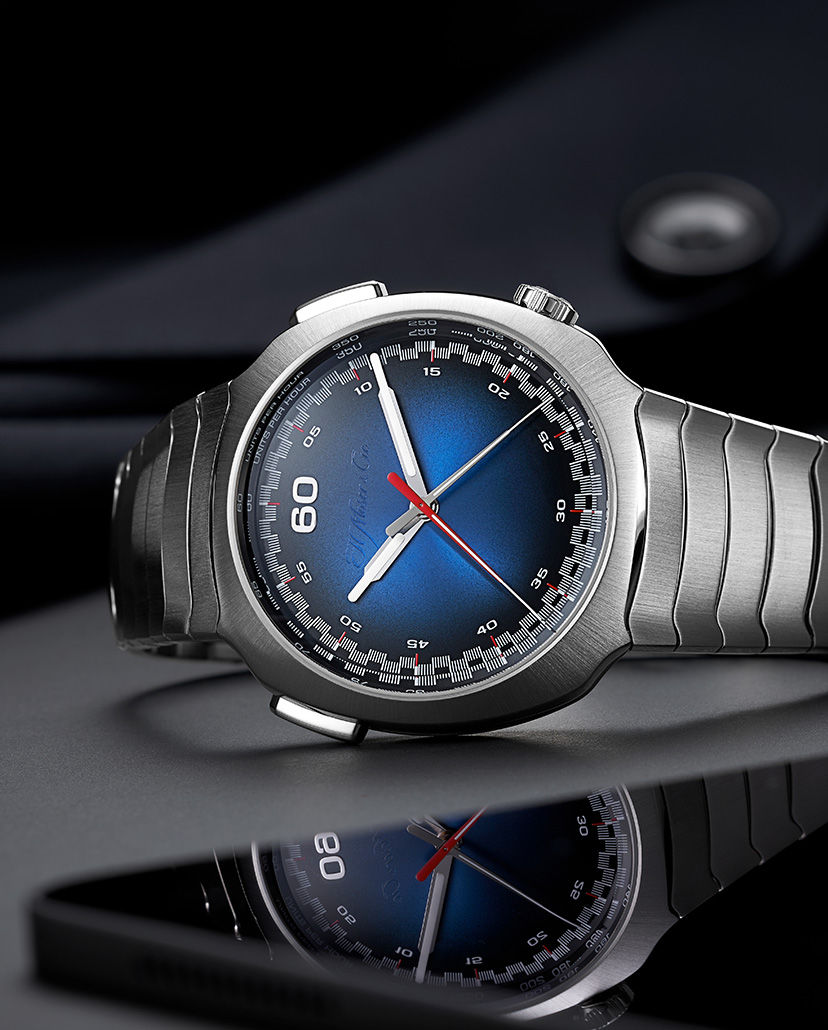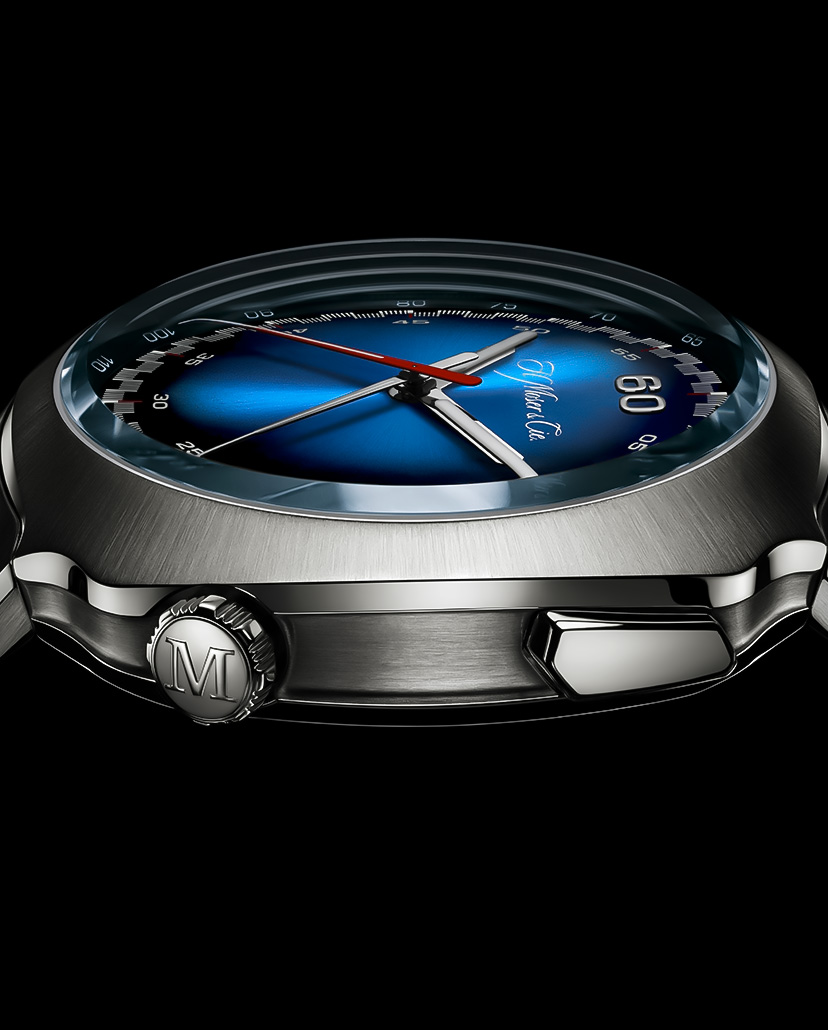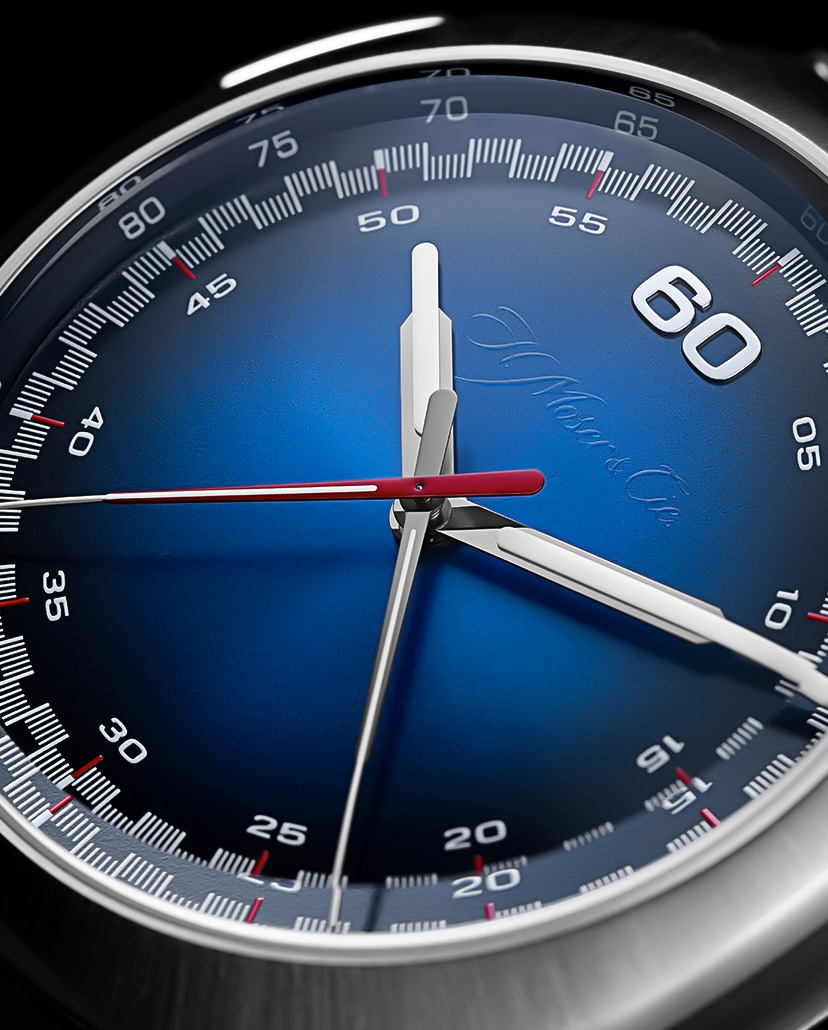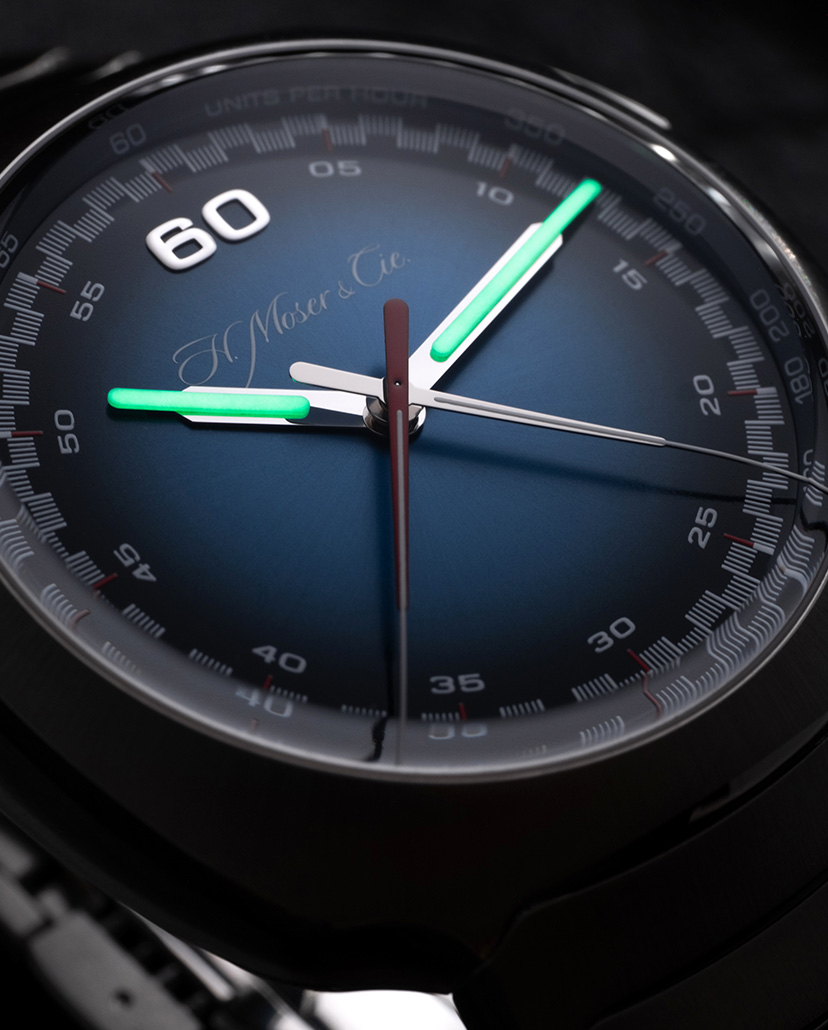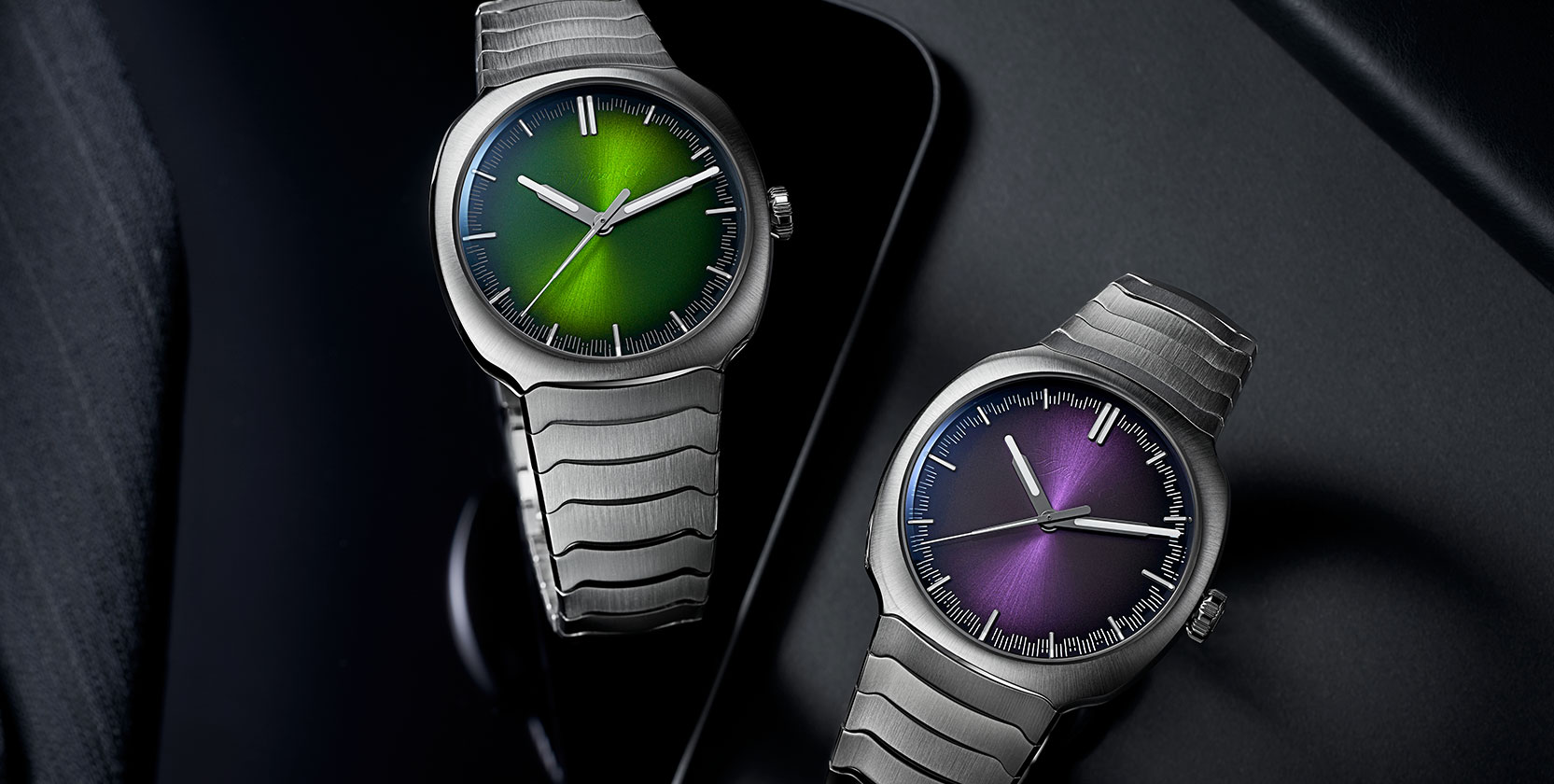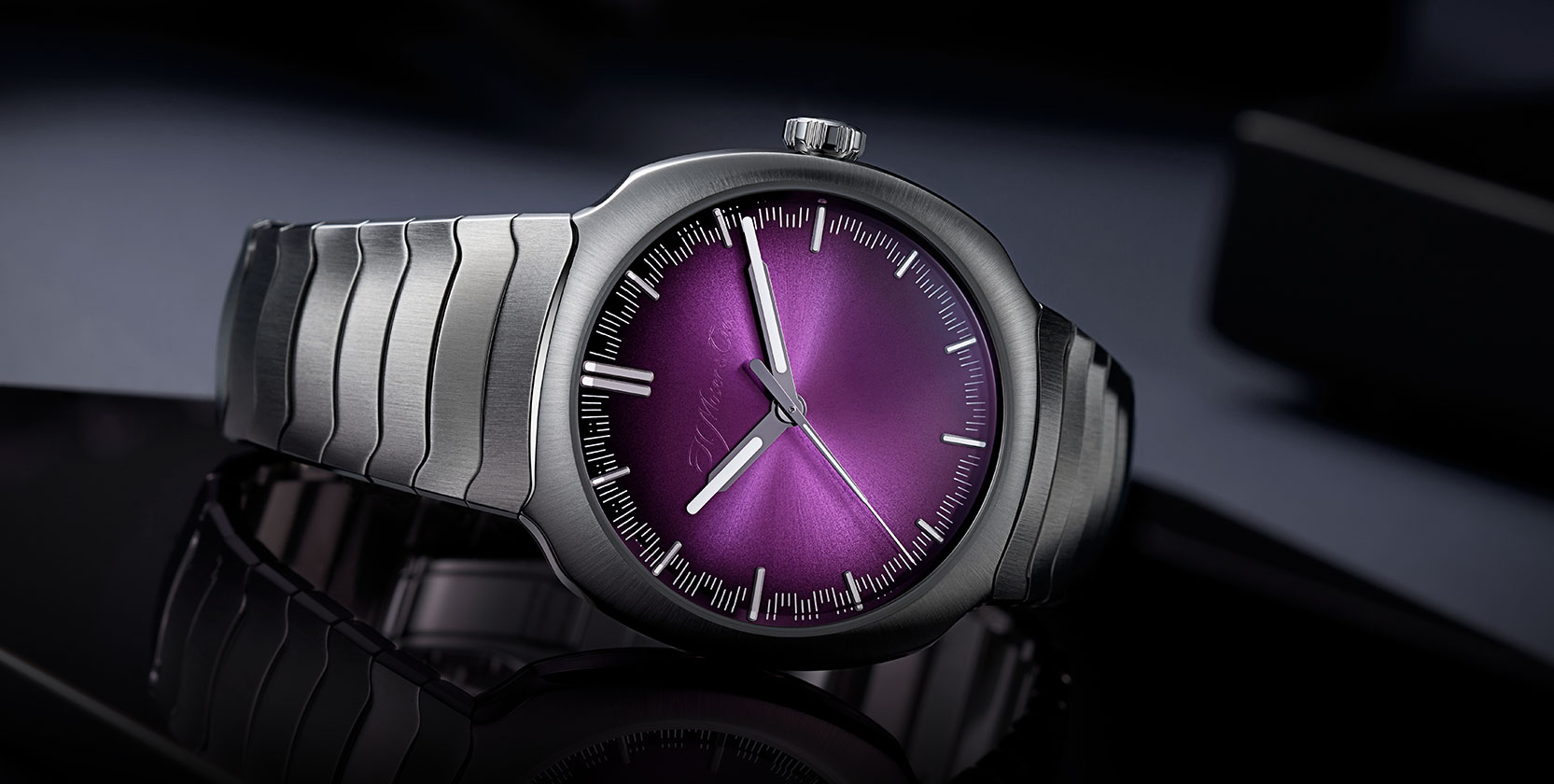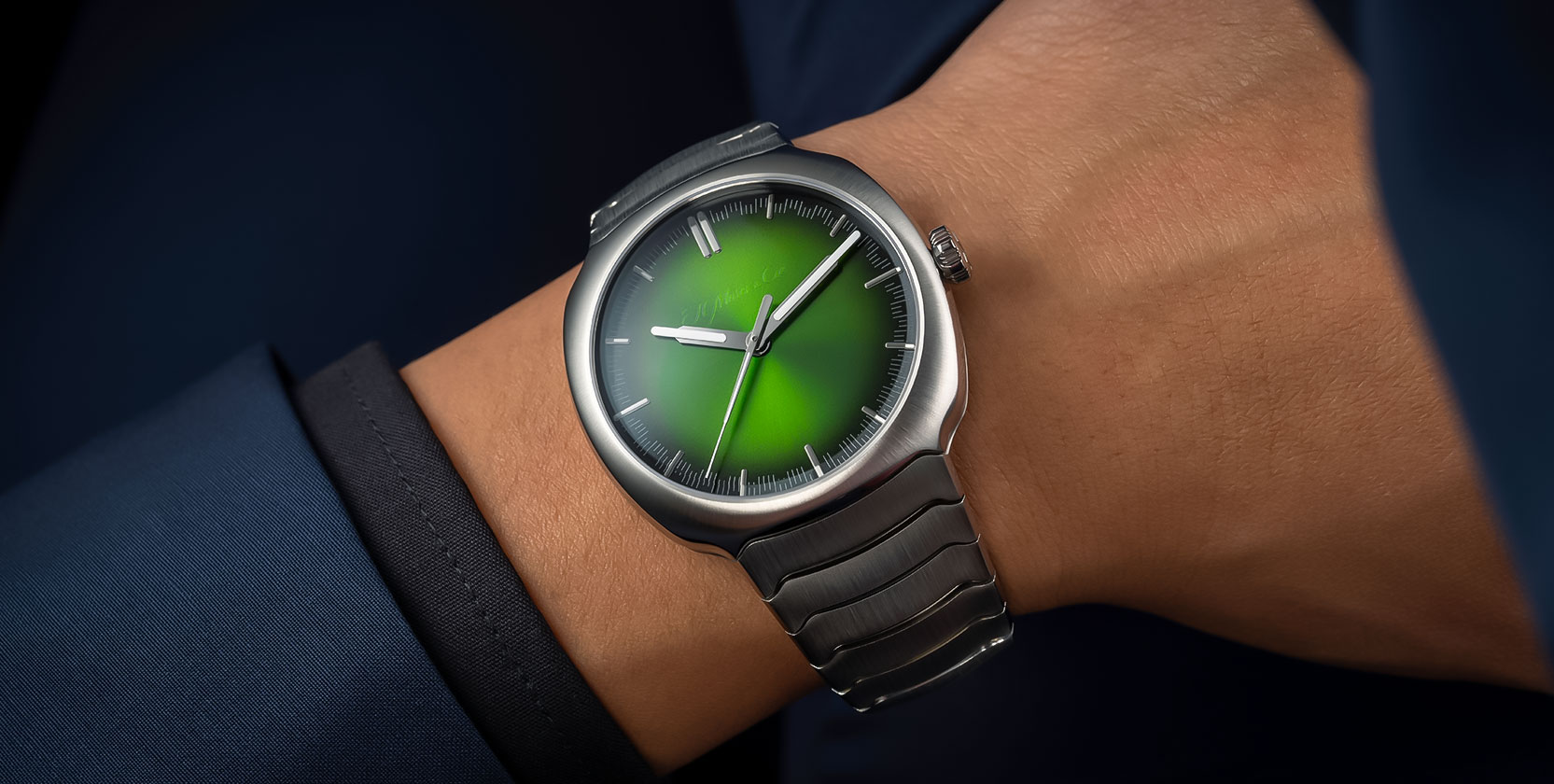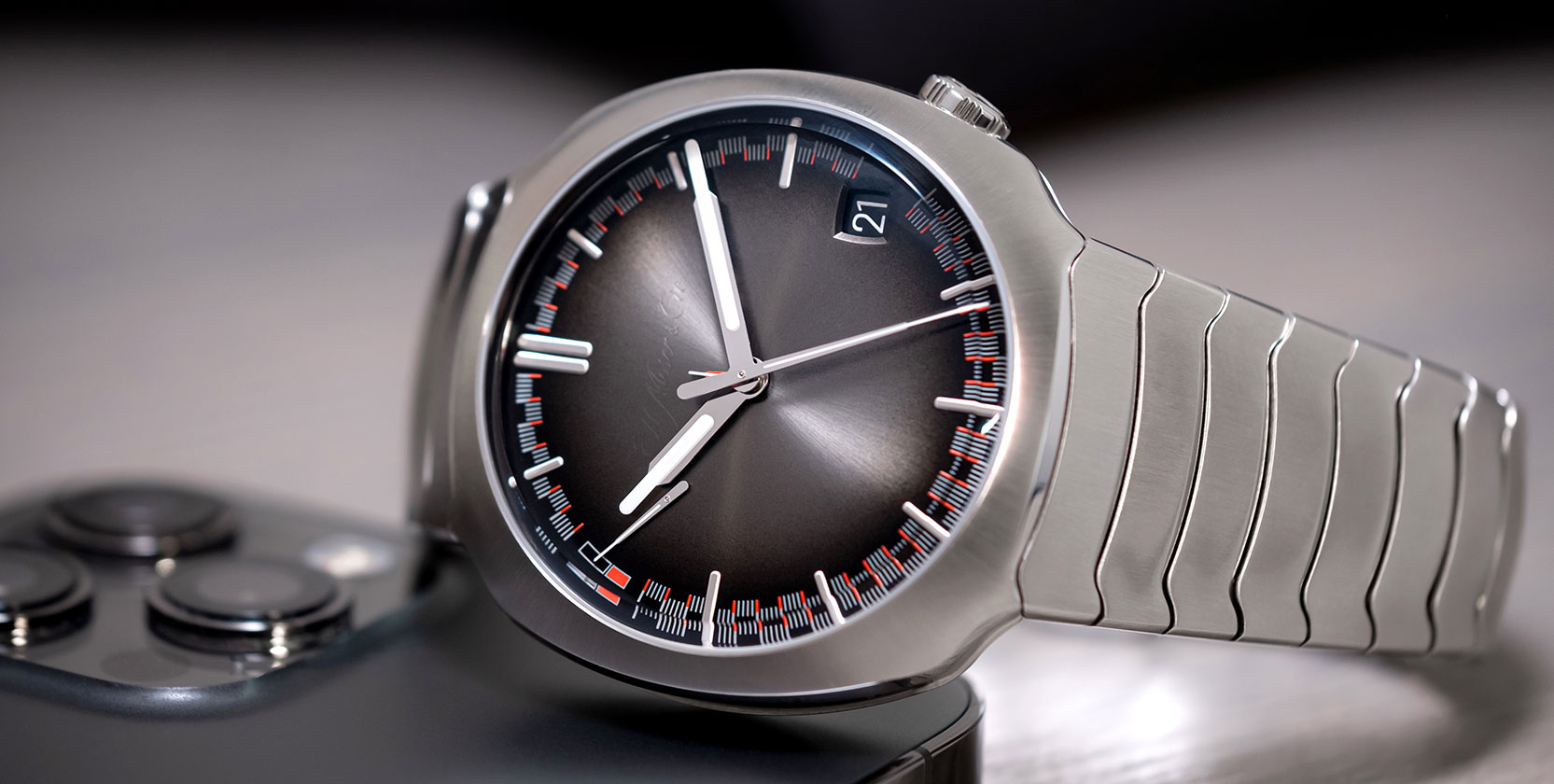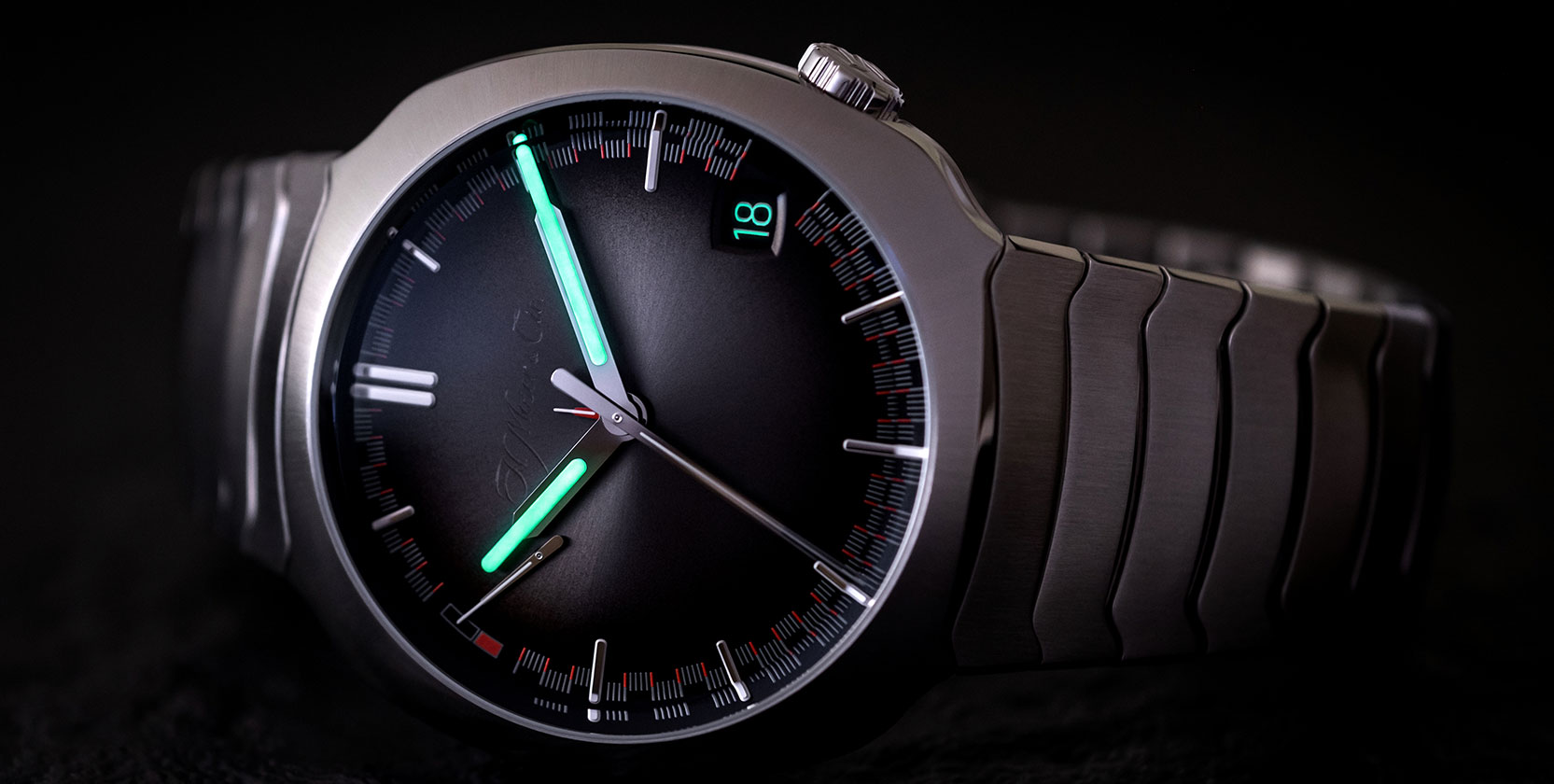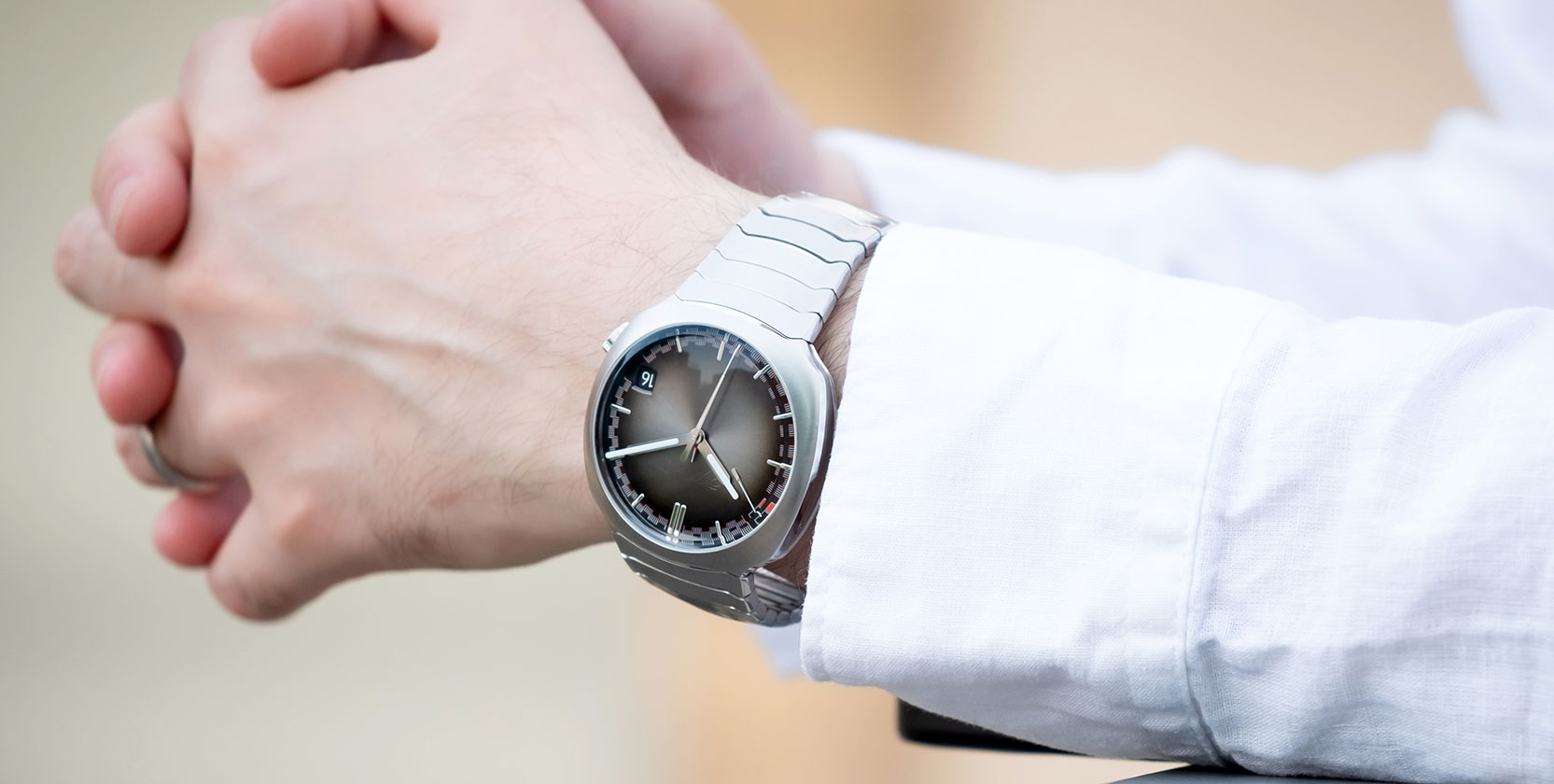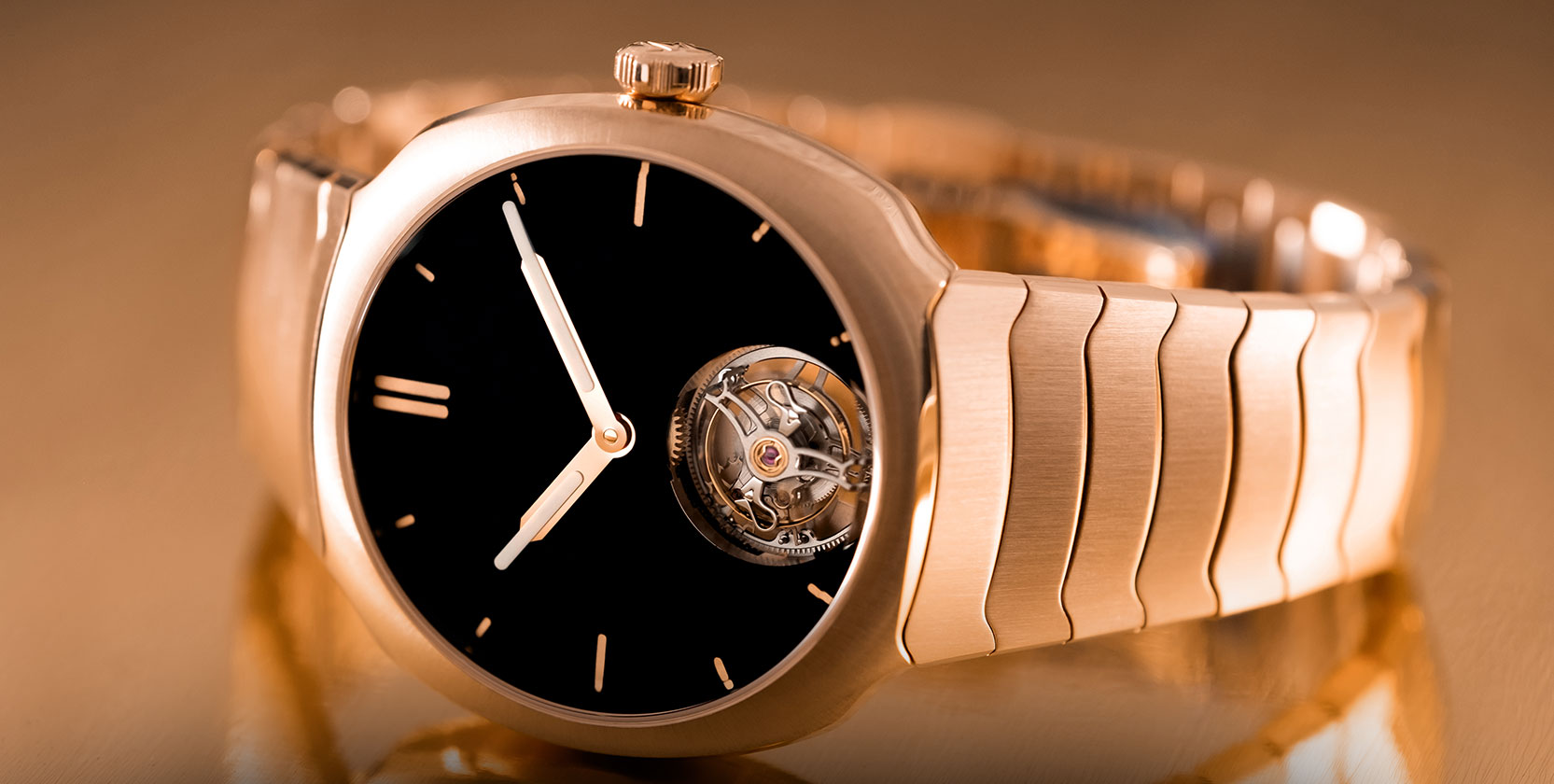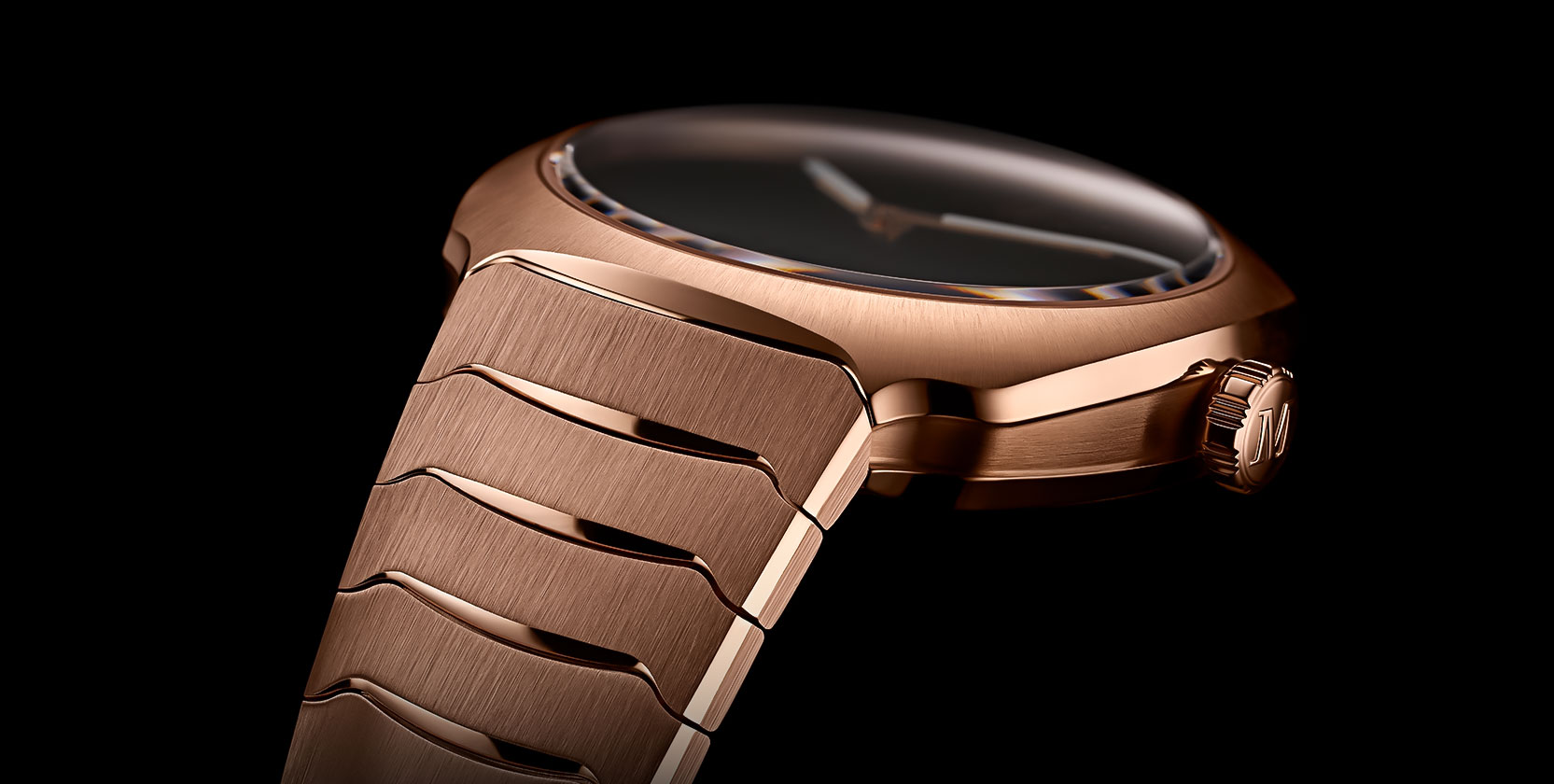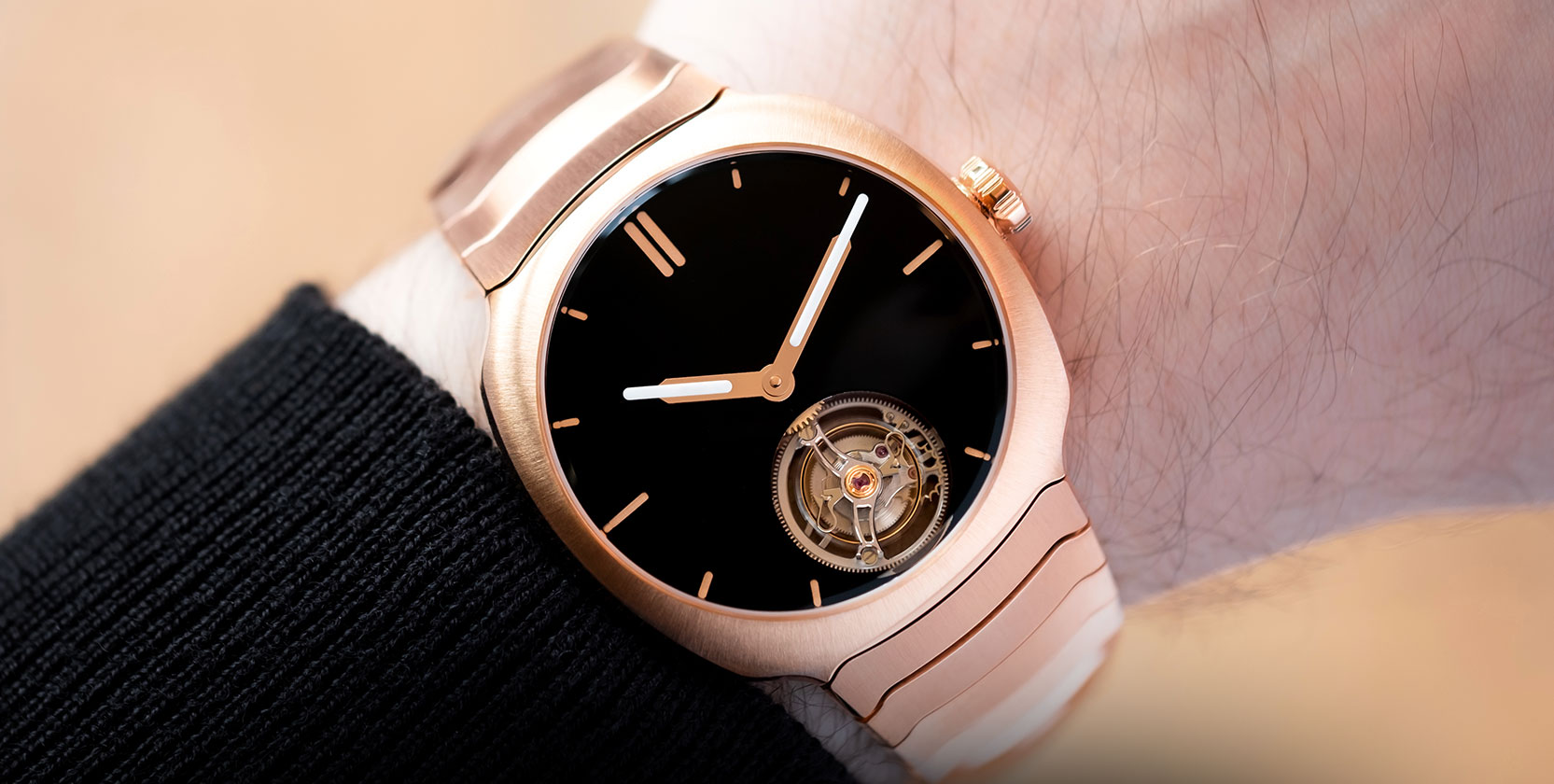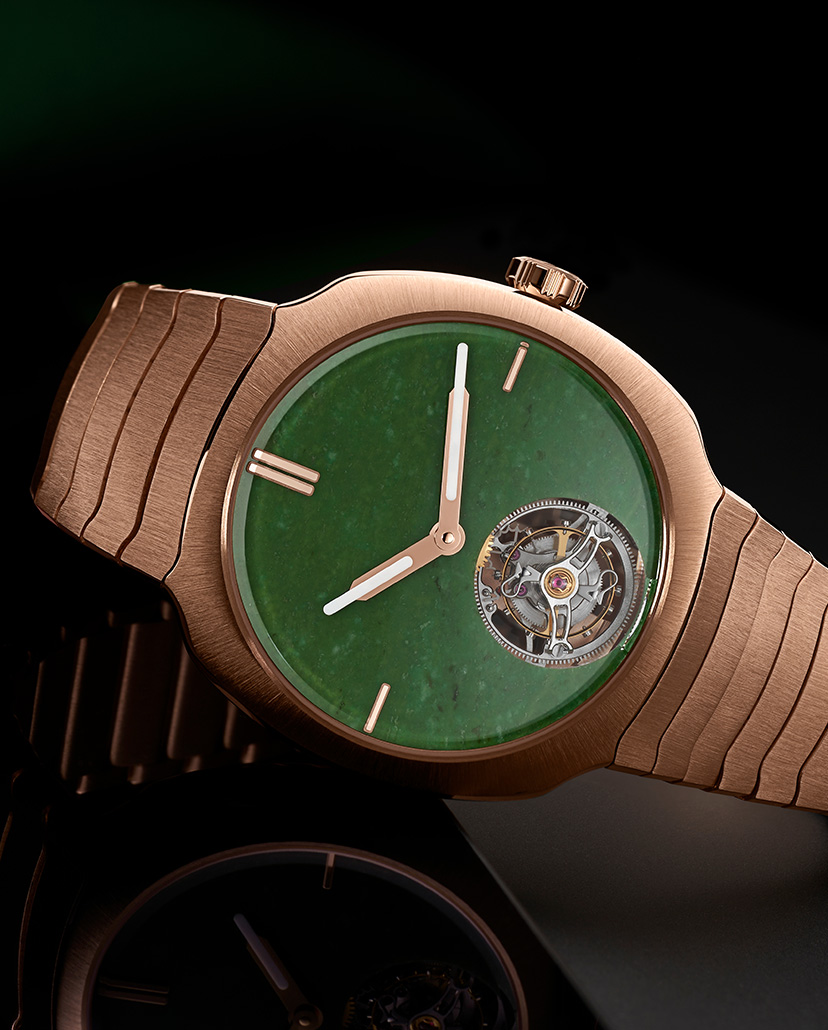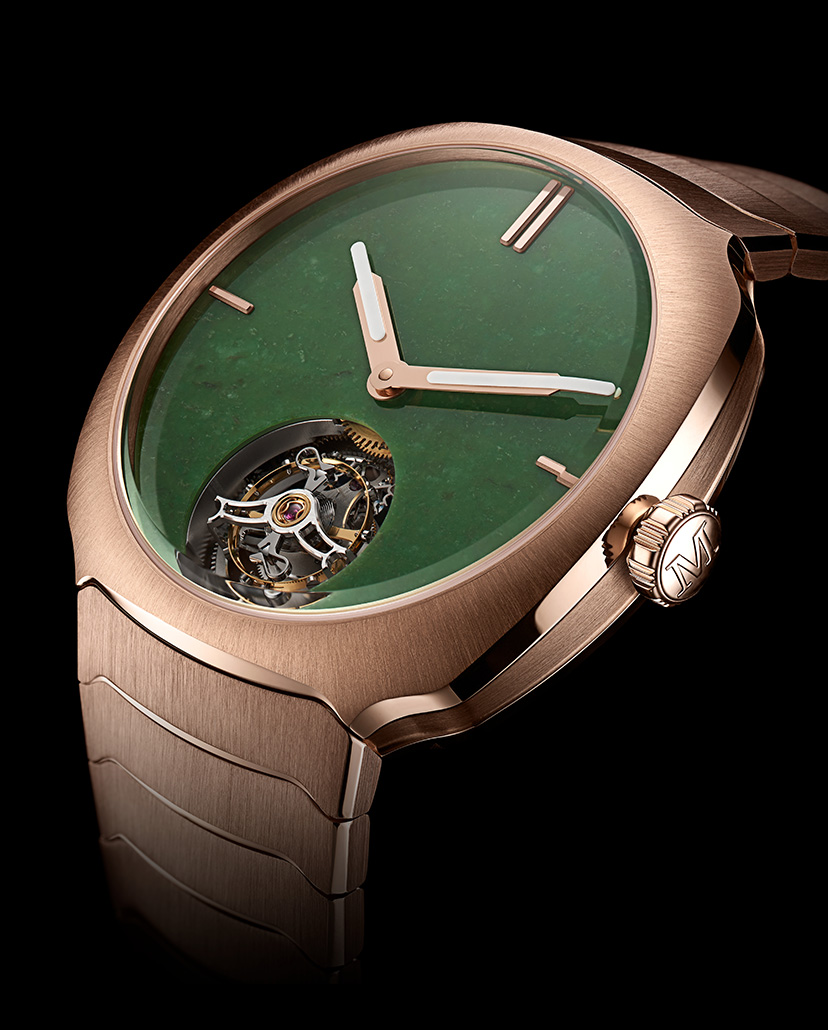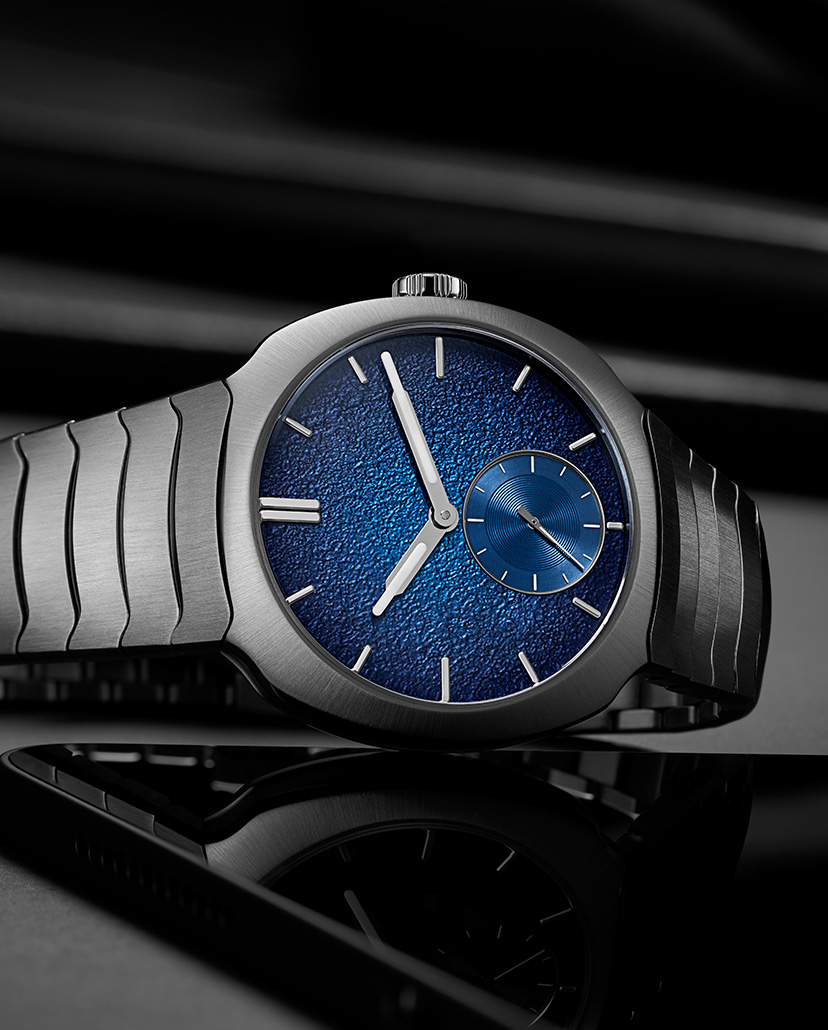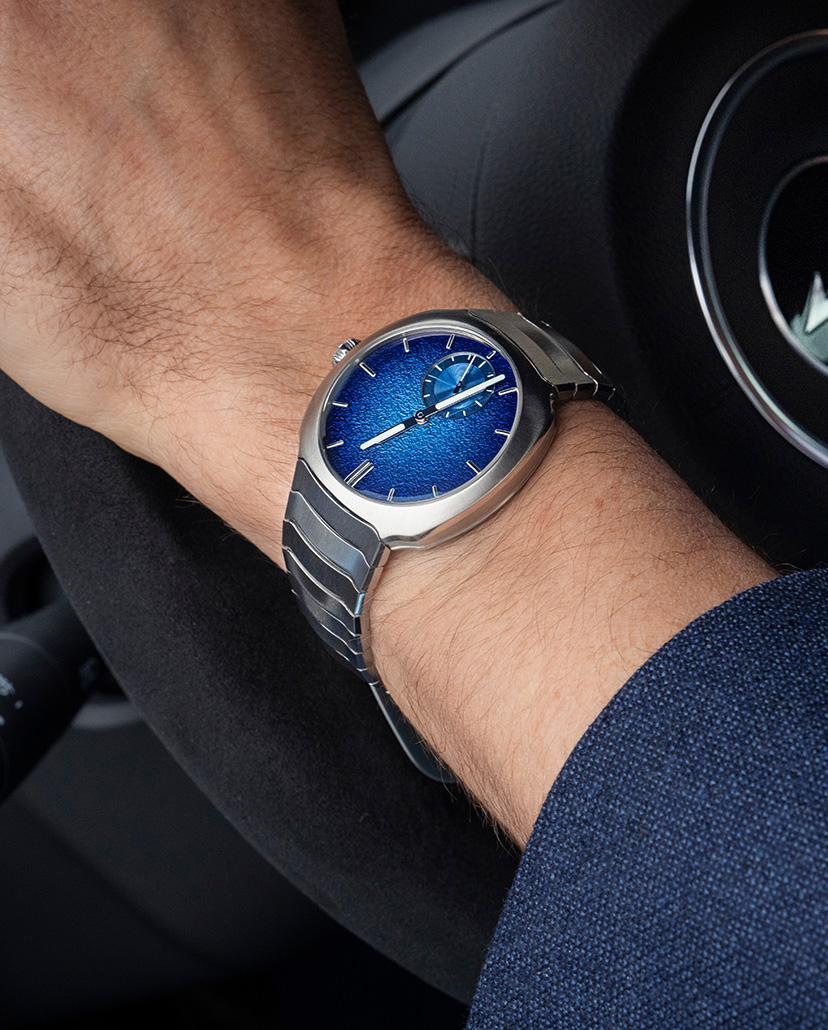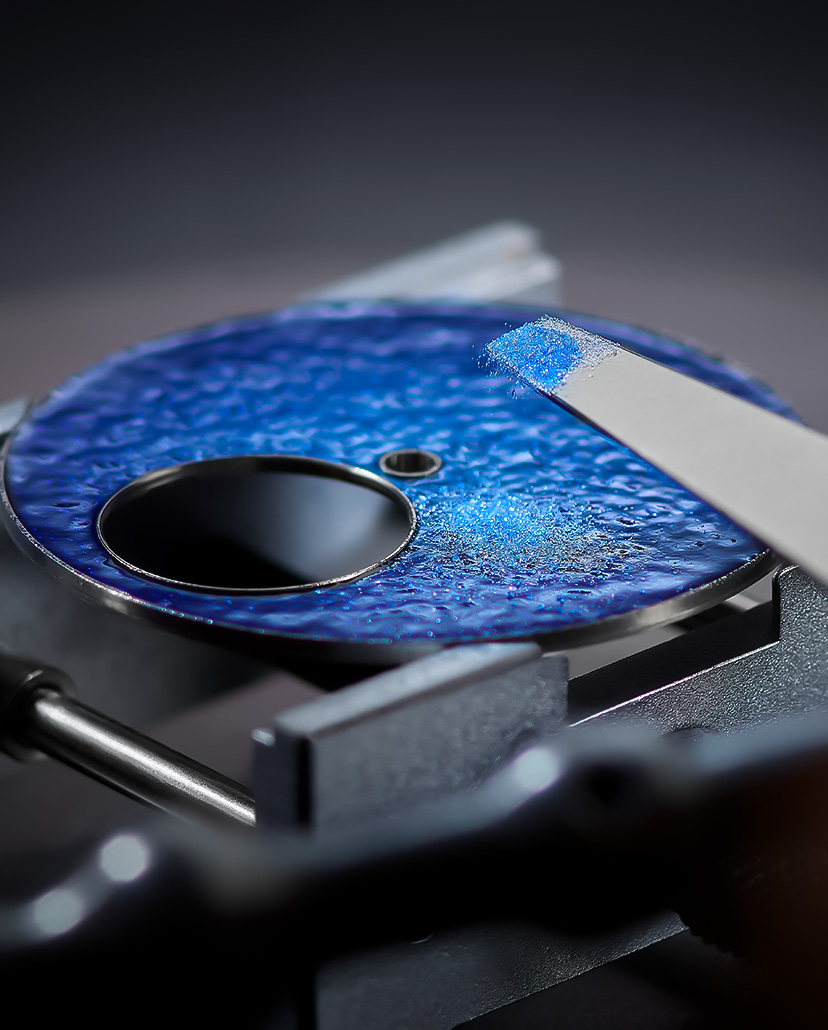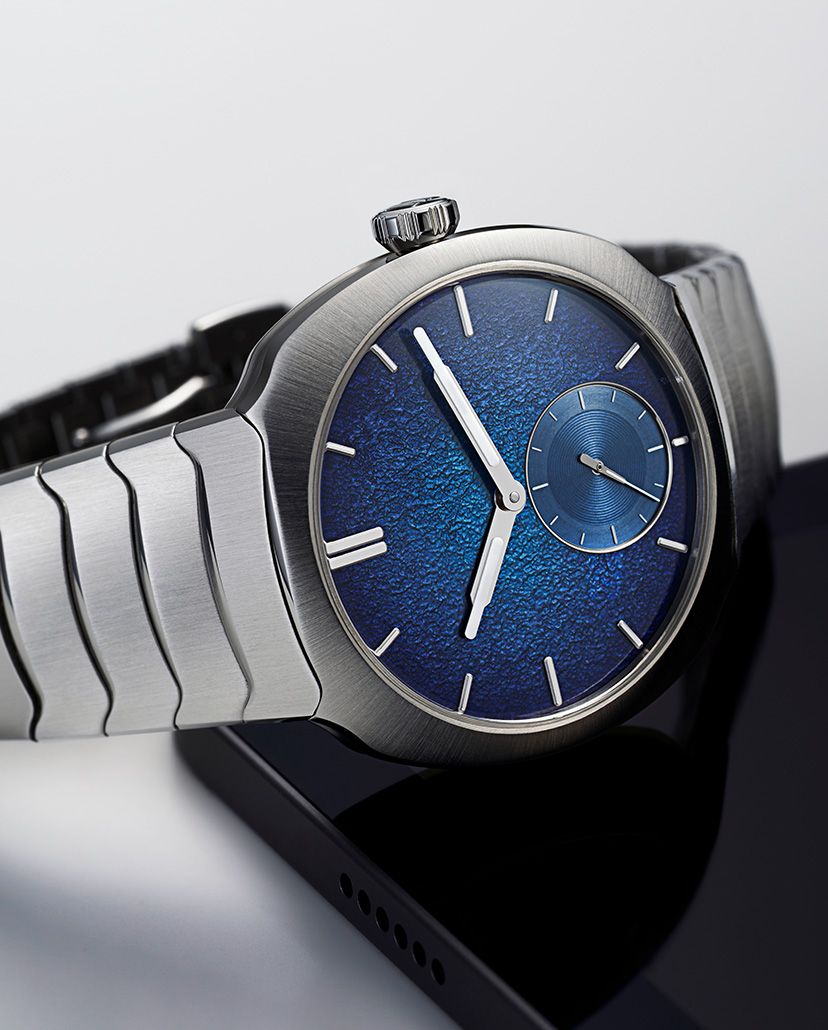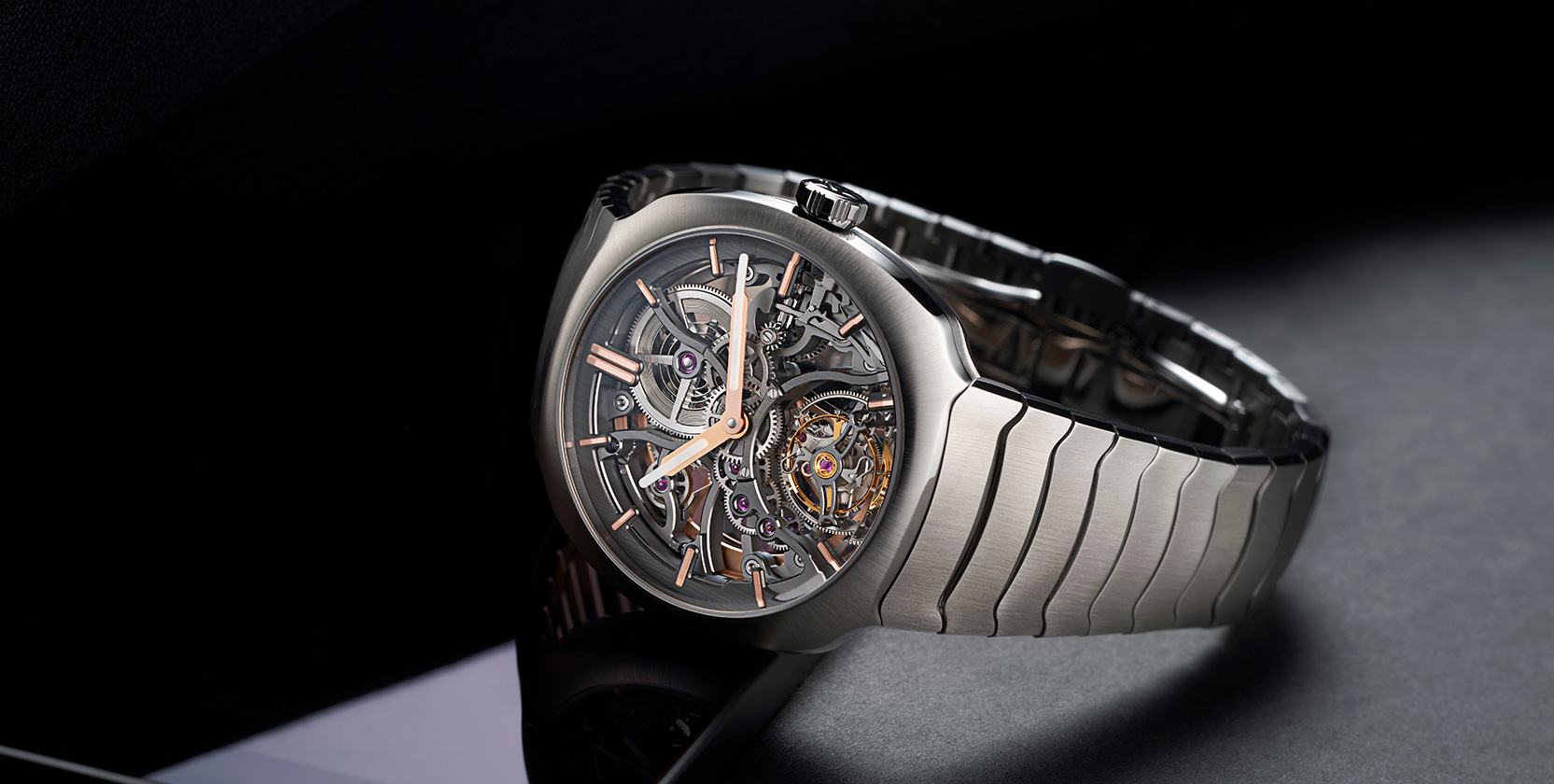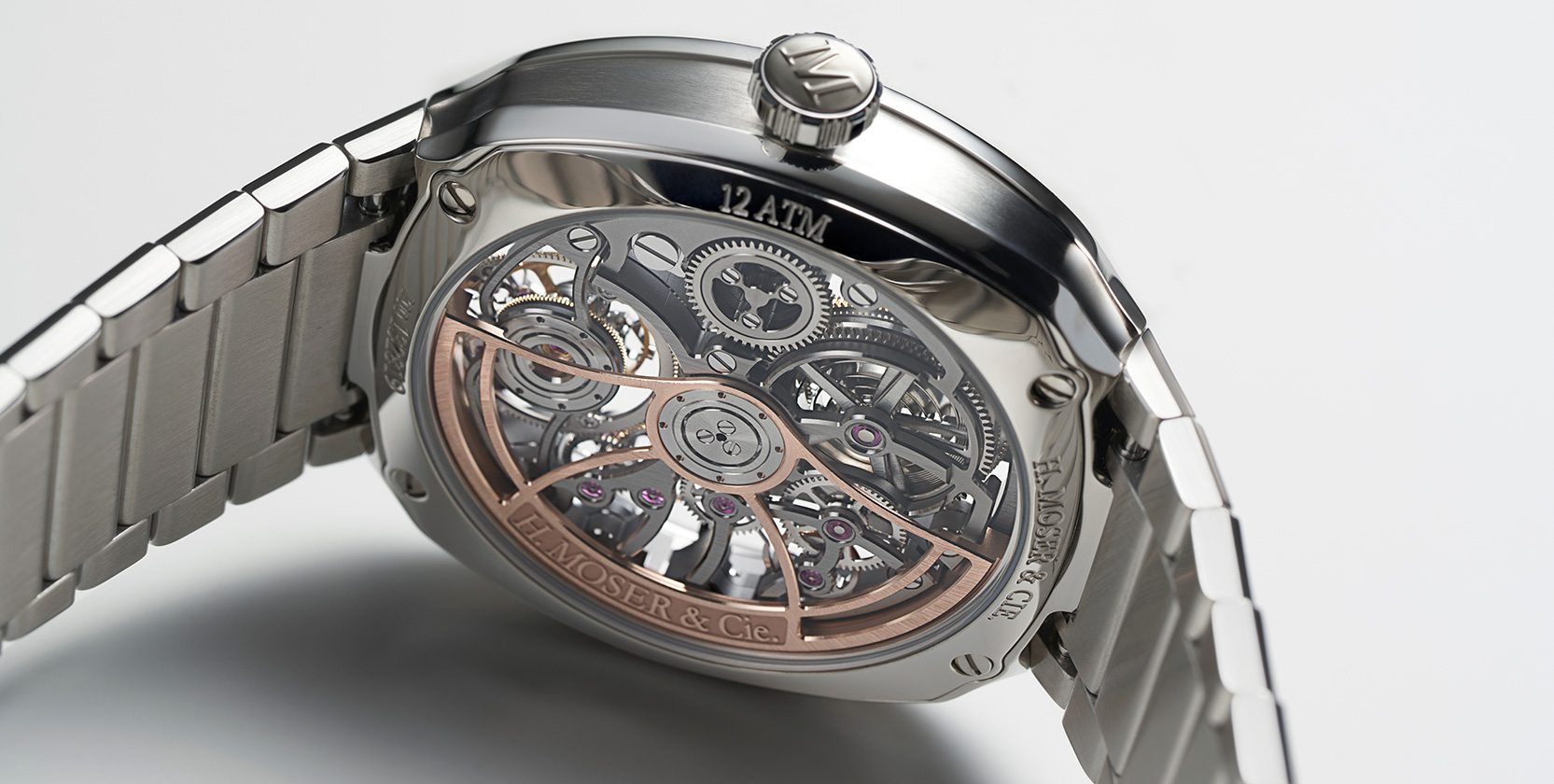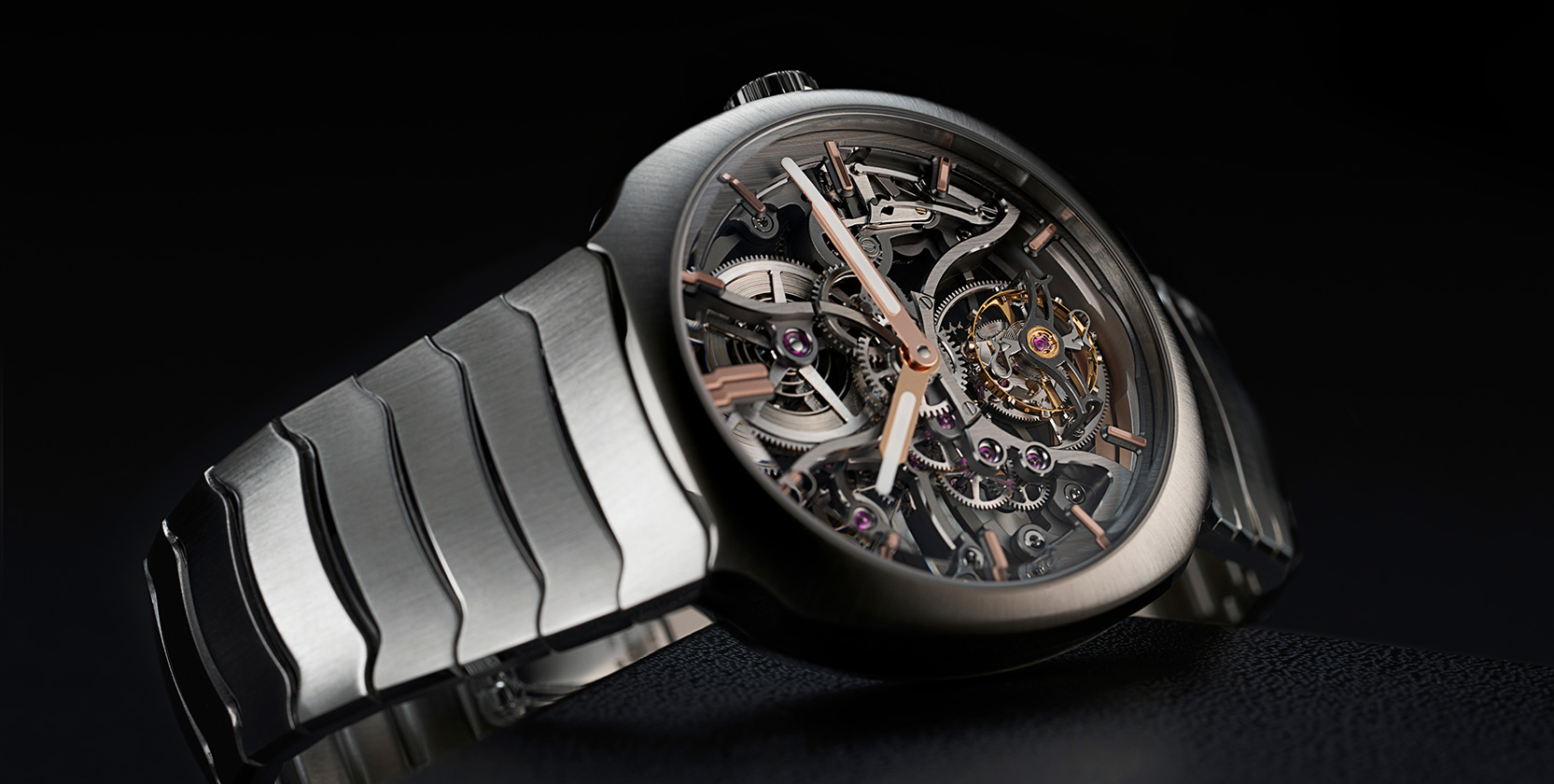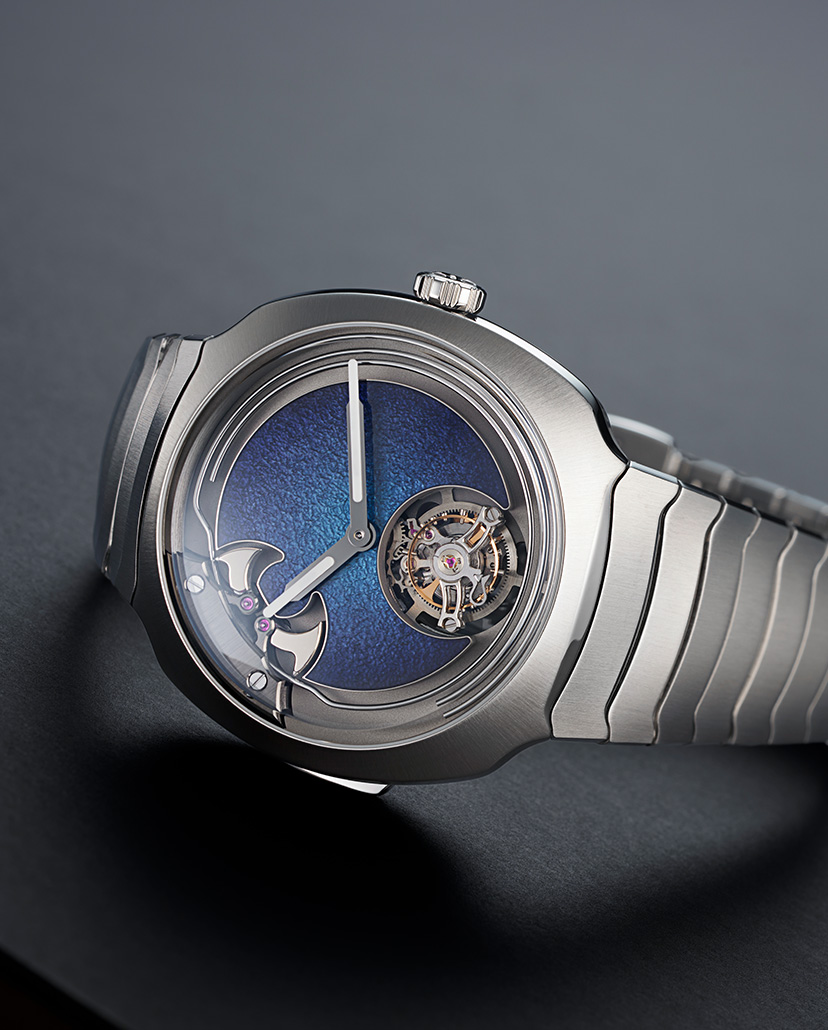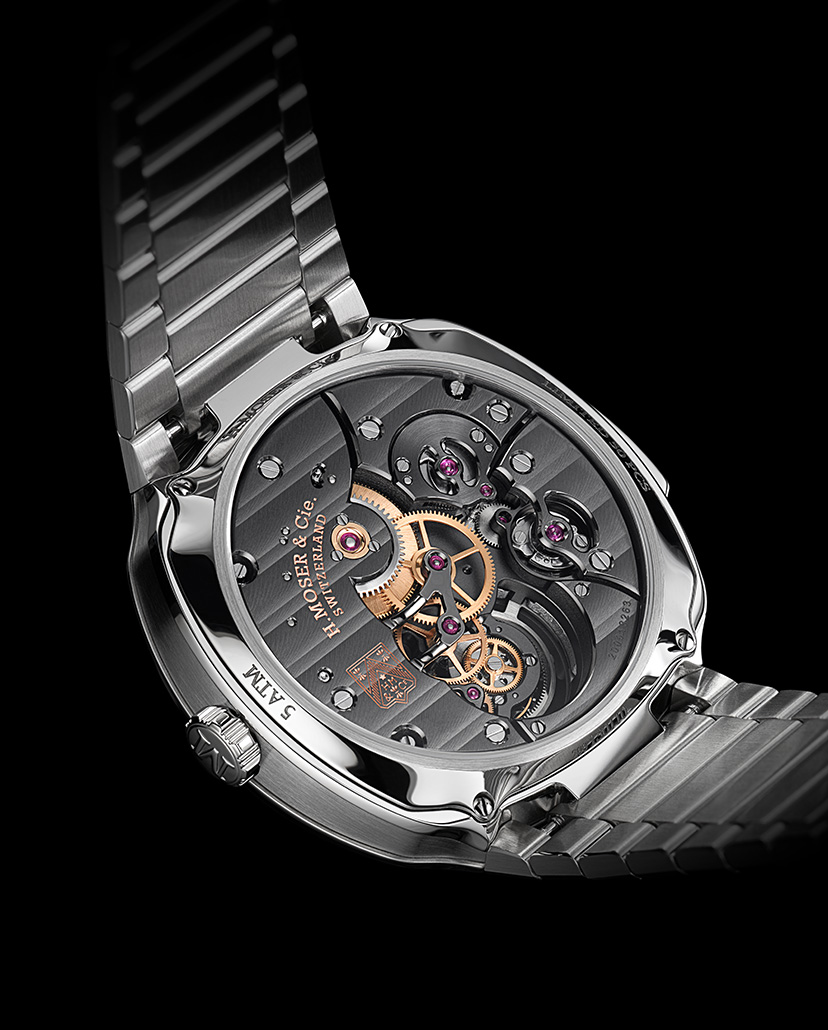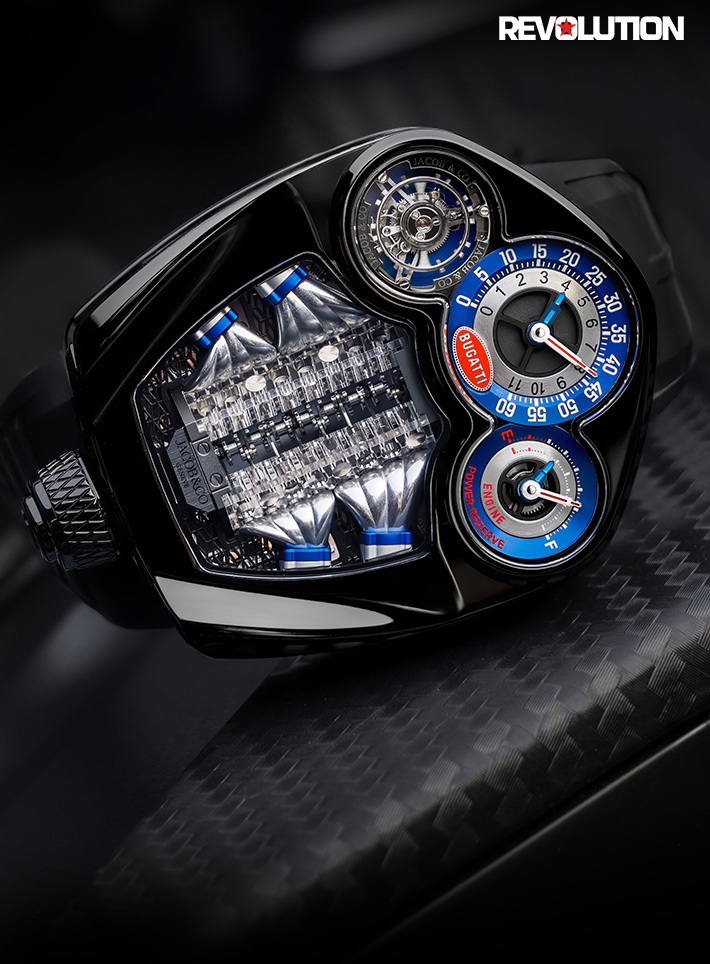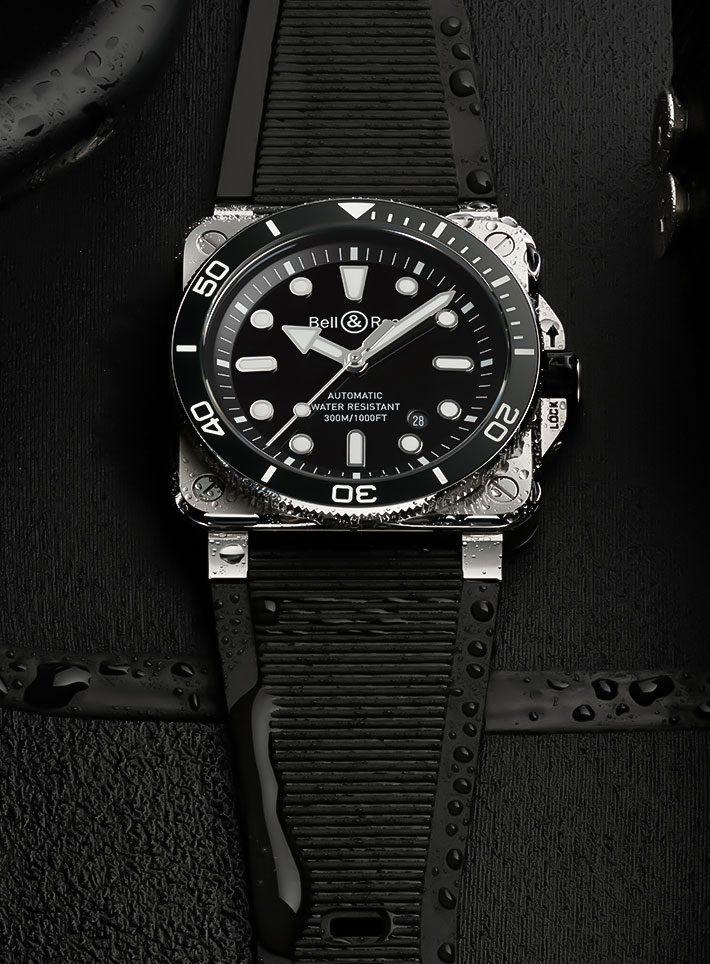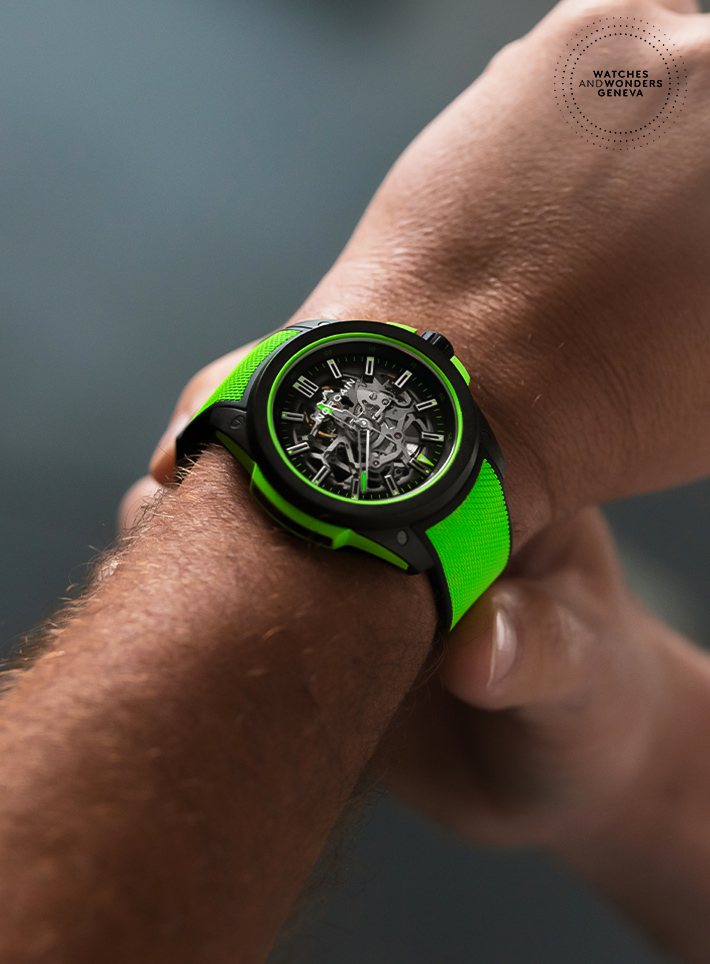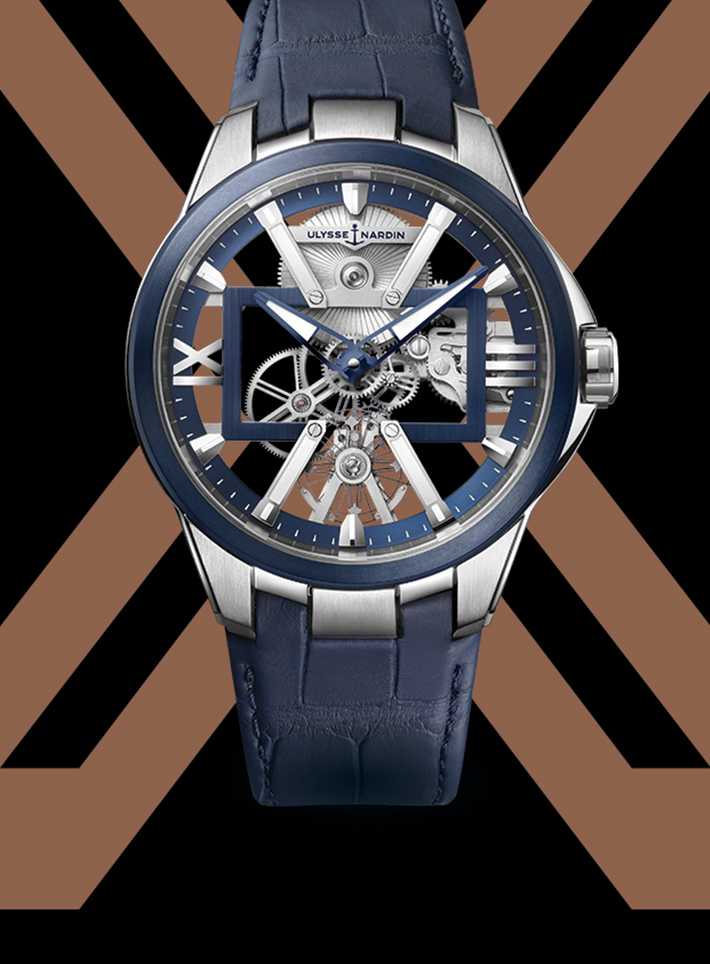Round-UpEvolution Of Fluid Timekeeping: Presenting The Finest H. Moser & Cie. Streamliner Timepieces
In just four years since the first H. Moser & Cie. Streamliner timepiece was introduced as an integrated steel sport watch, the collection has grown to encompass various complications such as the perpetual calendar and flyback chronograph, all while maintaining the brand’s minimalistic approach. Here are the finest H. Moser Streamliner watches available today
May We Recommend
Encompassing various complications within a distinctive cushion-shaped case, the H. Moser & Cie. Streamliner has had a rather incredible—albeit short—journey. Accolades and recognition received by H. Moser Streamliner watches along the way include those at the Grand Prix d’Horlogerie de Genève or the GPHGs, the highest honour in the watchmaking world. And while it may not be an ‘icon’ yet, the Streamliner is definitely here to stay. “Now it’s too early to say that it will become an icon. It’s only four years old, and it has potential,” said Edouard Meylan, CEO, H. Moser, in an interview with The Watch Guide. “It will take time and only time will tell, but it can get there and we will continue to protect the collection, and come out with just the right number of watches, the right complications, and not too many variations. We’ll see how this grows and we’ll see the results 30 years from now.”
H. Moser Streamliner Flyback Chronograph
Beginnings That Express
Development for the new collection began five years before the first Streamliner Flyback Chronograph Automatic was released in 2020. The idea was simple—to design a steel sport watch collection with an integrated bracelet. Instead of redesigning an existing Moser watch, the brand started with a blank canvas and one goal—the watch had to be smooth and fluid. To achieve this, H. Moser worked backwards, starting with the bracelet. Inspiration came from streamliner locomotive trains from the 1920s and 30s, particularly the 1936 Mercury streamliner with curves that enhanced the aerodynamics and speed of the train.
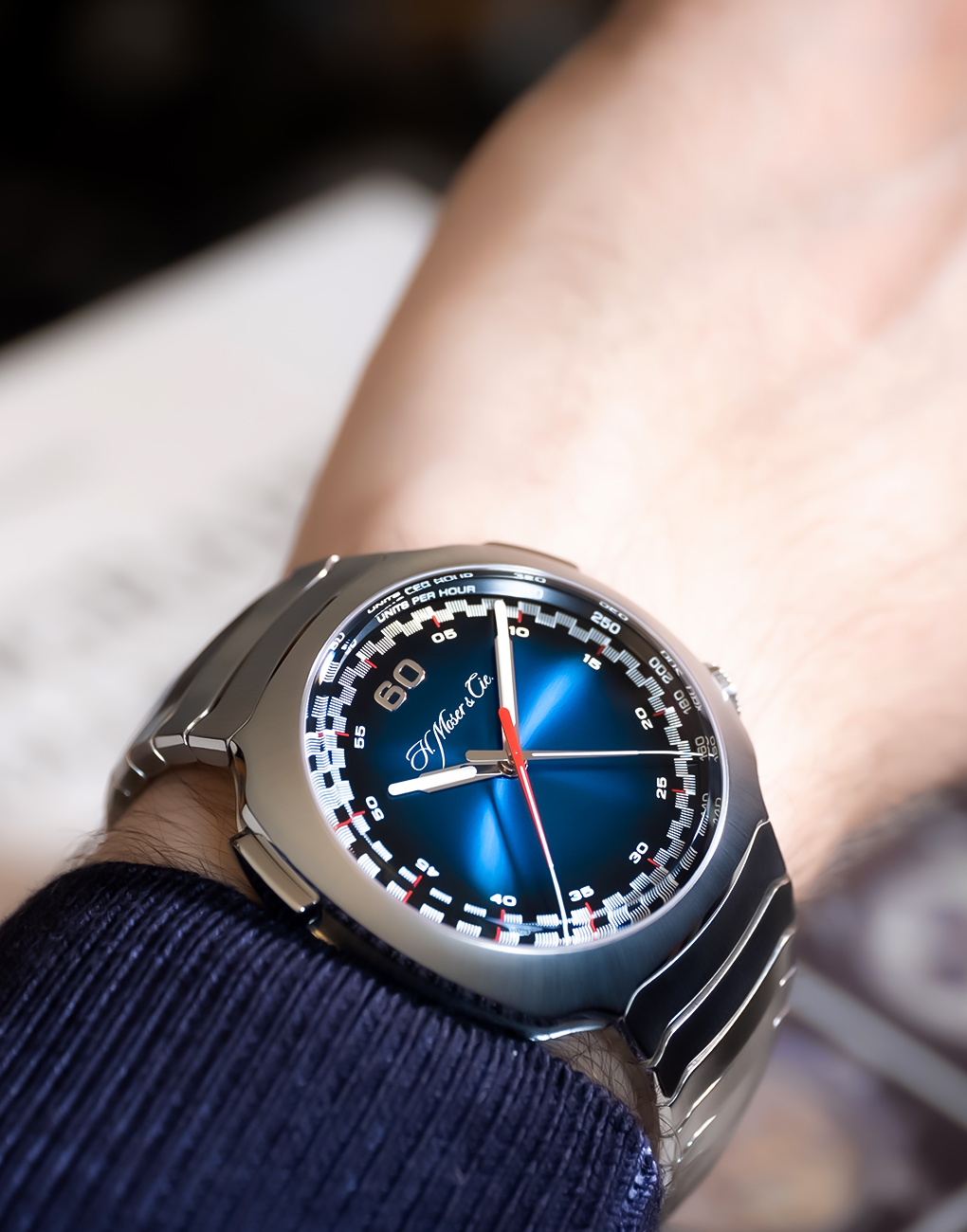
Smooth curves of the fluid Streamliner bracelet reflect this inspiration with a brushed finish along the surface of the single, wave-patterned links and contrasting smooth polished edges at the joints. These curves integrate into the 42.3mm cushion-shaped case, with a matching brushed effect alternating with polished surfaces, and a generous water resistance of 120m. A recessed, satin-finished case middle highlights the fluidity of the case and bracelet, interrupted only by the crown at four o’clock and chronograph pushers at two and 10 o’clock. The domed sapphire crystal glass that sits atop the dial flows just as smoothly from the case, while its bevelled edges highlight the views of the watch face at an angle.
Minimalism in the mechanism
While the case and integrated bracelet were a distinct departure from anything Moser, the dial featured the brand’s signature fumé or smoked effect. The very first Streamliner Flyback Chronograph with an anthracite fumé dial, was followed later that year with a ‘funky’ blue one, now another of Moser’s signature hues. On the flange is a tachymeter scale, while a ‘racing’ minute track with red and white markings around the periphery frames the gradient dial of the Streamliner Flyback Chronograph. The outer markings are used to measure the chronograph seconds while the inner track is for minutes. Two central chronograph hands—in red for seconds and rhodium-plated for minutes—perform the advanced flyback chronograph feature, which allows you to stop and restart the stopwatch without having to reset. Timekeeping hands look distinct for their thicker, rounded finish and Globolight inserts. With barely any distractions on the dial, the Streamliner Flyback Chronograph is a minimalistic approach to displaying the complication. “We preferred understatement, ergonomics, and legibility, opting for a central display with no sub-dial: perfectly matching our minimalist philosophy,” Meylan said about the watch.
Powering the watch is the HMC 907 calibre, with about 434 components that integrate both chronograph and timekeeping functions, simplifying the display and easing functionality of the timepiece. The calibre, which was developed in collaboration with AGENHOR, an independent body, is displayed through the exhibition caseback of the timepiece, without the obstruction of the rotor that automatically winds the watch as the wearer’s wrist moves. Instead, the tungsten oscillating weight has been shifted between movement and dial. The movement beats at a frequency of 21,600vph and offers a power reserve of 54 hours. This unique take on a chronograph—’the Streamliner is a chronograph, which displays the time, rather than a watch that features a chronograph’—won a GPHG in the chronograph category in November 2020, around the same time as this ‘funky’ blue dial version was released.
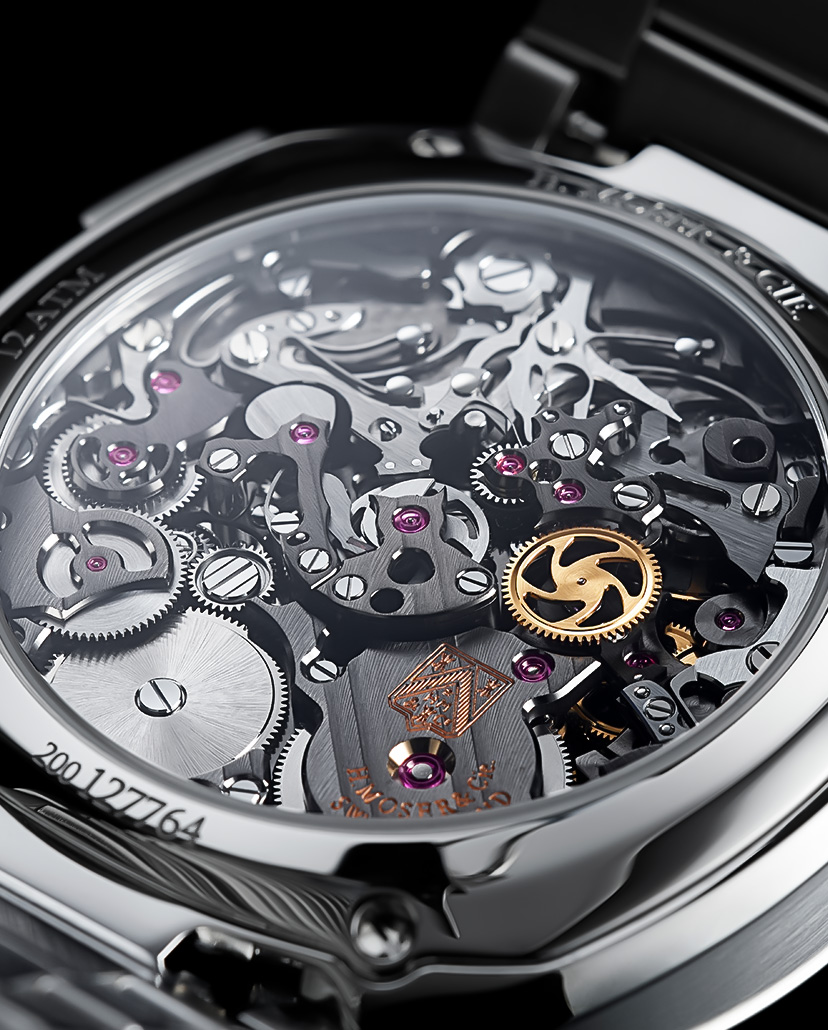
H. Moser Streamliner Centre Seconds
Express Essentials
Following the release and recognition of the first Streamliners, the brand decided to introduce a basic, everyday watch that featured timekeeping essentials—hours, minutes and seconds. The Streamliner Centre Seconds Matrix Green timepiece makes an entrance in 2020. Nicknamed the ‘Green Dragon’, this watch was a runaway success. “The Centre Seconds was done to have an entry-level watch in the collection,” Meylan said. This year, the brand released an updated Streamliner Centre Seconds Matrix Green timepiece, along with the Purple Haze. Sized at 40mm, the cushion-shaped steel cases are water-resistant to 120m. Alternating brushed and polished surfaces, and a recessed, satin-finished case middle decorate the case, with a curved, integrated steel bracelet flowing seamlessly from the case, elegantly and ergonomically hugging the wrist.
The fumé dial of the Matrix Green timepiece offers a stunning pallete encompassing shades of bright electric green with flecks of yellow, olive, and a deep forest hue that darkens to almost black around the periphery, where the ‘racing’ minute track frames the dial. For the Purple Haze timepiece in rich shades of deep pink, blue, and royal purple transition to a beautiful dark hue that’s not quite black. With only a ‘secret’ signature in lacquer and neat white indexes, these new sunray-brushed shaded dials take centre stage on the watch, reflecting light differently at different angles. Structured timekeeping hands feature Globolight inserts for enhanced legibility in the dark.
These beautiful new timepieces in purple and green are powered by the new automatic HMC 201 calibre, visible through the sapphire crystal window on the caseback. A bi-directional pawl winding system with a skeletonised oscillating weight made from 18-karat gold offers a detailed view of the components within. Even bridges have been skeletonised to enhance optics of the highly decorated calibre that powers this timepiece with a hacking seconds mechanism.

H. Moser Streamliner Perpetual Calendar
Expression In Perpetual Minimalism
Once the Streamliner line took off, there was no stopping the brand. The dual successes of the Streamliner Flyback Chronograph and Streamliner Centre Seconds in 2020 prompted the brand to release a new complication for the collection at Geneva Watch Days in 2021. The Streamliner Perpetual Calendar is a minimalistic and clever take on what would otherwise be a complex display of date, month, leap year indication, and a power reserve indicator, besides standard timekeeping hours, minutes and seconds functions. It was not really a new complication for the brand as the minimalistic perpetual calendar had been around since 2005, but now this complex complication comes in a new display on a fresh canvas.
The now distinctive cushion shaped case—measuring 42.3mm, resistant to 120m of water and with an integrated steel bracelet—houses a new calibre, the manual winding HMC 812. The calibre offers a minimum power reserve of 168 hours, which is displayed on an indicator at 10 o’clock on the dial. Visible through the open caseback, components of the movement such as the bridges and plates feature an anthracite PVD finish, which is a departure from the brand’s usual decoration for movements. This treatment contrasts with and highlights gold elements of the calibre, such as the escapement wheel, pallet fork and screwed gold mounts. Also visible on the caseback is the leap year indicator, clear enough when one looks for it, but not so jarring as it would be on the minimal dial.

Dialled down to display more
Displays on the anthracite-coloured fumé dial include the power reserve indicator at 10, a date window at four o’clock, and a small red and white centrally mounted hand that points to the month of the year, which coincide with the hour indexes on the dial. However, it is the date window with a ‘flash calendar’ system that is rather interesting. Via two superimposed discs, one that operates from one to 15, and the other from 16 to 31, the date changes in a flash at midnight, unlike most other perpetual calendar watches, where the date changes gradually. Even on February 28 or 29, or on months with 30 days, the second disc stops at 28, 29 or 30, letting the first come into play to change the date. Essentially, this means that accuracy aside, a manual change in date will likely not be required.
Other elements on this Streamliner Perpetual Calendar exhibit a constant with the aesthetics of two previous Streamliners. The three-dimensional rounded hands with Globolight inserts and the ‘racing’ minute track in red and white remain. What stands out on this dial, though, is Moser’s secret signature. This was the first time the brand did away with visible branding on the Streamliner’s dial and chose a transparent lacquered signature, making it visible only when light reflected off it at certain angles. A silent nod to the wearer, this secret signature is, now, here to stay, just like this fascinating and minimalistic take on an otherwise information-heavy watch.
H. Moser Streamliner Tourbillon Vantablack
A Change Of Track
For their fourth stroke of genius, in 2022, the brand released the H. Moser Streamliner Tourbillon Vantablack in a case made from 5N red gold, which has a definitive coppery-pink hue. While the material used in this new timepiece is different, the 40mm cushion-shaped case of the Moser Streamliner Tourbillon Vantablack, its integrated single wave-patterned link bracelet, and domed sapphire crystal glass over the dial feature the familiar finishes of previous Streamliner watches. Polished and brushed surfaces on the steel Streamliner watches were gorgeous indeed, but on this Moser Streamliner Tourbillon Vantablack, the finishes elevate the watch considerably. Moreover, paired with a deep Vantablack dial, the red gold stands out brilliantly, the gilt and the dark complementing each other as little else can. Interestingly, despite the change in material, the water resistance rating of the timepiece remains 120 metres.
On this timepiece, the Vantablack dial stands out for how deep the dark is. Named for Vertically Aligned Nano Tube Array (VANTA) Black, Vantablack is a coating that absorbs over 99.96 percent of light, and is regarded as the world’s ‘darkest black’. Its application has primarily been in astrophysics and military industries, but not as much in horology—it was first used by the brand in 2018. This Moser Streamliner Tourbillon Vantablack stands out for its gorgeous minimalism. On the dial devoid of even a lacquered logo, red gold indexes that match the case have been applied on from the back, so that if the watch is angled, the Vantablack absorbs even the light reflected off these gilded markers.
Floating at six o’clock on the dial of the watch is a one-minute tourbillon that, thanks to deep, dark surroundings that devour all light reflected onto it, looks as if it were suspended in nothingness. Behind the Vantablack dial but visible through the caseback of the Moser Streamliner Tourbillon Vantablack timepiece is the HMC 804 automatic calibre. A pair of matched hairsprings designed and produced by the brand’s sister company Precision Engineering AG, ensure that the movement of the point of gravity on each spring when it expands is corrected, also reducing friction and significantly improving accuracy.

H. Moser Streamliner Tourbillon Rainbow
Elevating their Moser Streamliner Tourbillon Vantablack timepiece, the brand released the Streamliner Tourbillon Rainbow watch in 2023. Only now, the 40mm case in 5N red gold features a bezel of 60 baguette-cut sapphires (measuring 290 carats) arranged in a rainbow-hued frame for the curved sapphire crystal glass over the Vantablack dial. This Moser Streamliner Tourbillon Rainbow is also powered by the HMC 804 calibre, which offers a power reserve of 72 hours.

H. Moser Streamliner Tourbillon Wyoming Jade
For their third rendition of the Moser Streamliner Tourbillon watch released in January 2024, the brand replace the Vantablack dial with jade. The natural, green mineral, obtained from Wyoming, USA, has been untreated to preserve its raw character. Against a 40mm case and integrated bracelet in 5N red gold, the warm, olive hue of the jade dial stands out.
Each watch is unique as natural markings and colouration of the stone are inimitable. The raw stone is cut precisely using CNC technology in a liquid environment so as to obtain a thickness of 1 to 1.2mm. After careful inspection, this stone is cut into dials, before being glued to metal plates so that precise shapes can be obtained via CNC technology again, and then refined further to the desired thickness. Naturally, this process requires extreme precision. The dials are hand polished to display the stone’s natural brilliance, a thin layer of varnish is applied to the reverse of the dial before it is attached to a brass plate. This is done to preserve the mineral’s aesthetic integrity by disallowing the brass to shine through what is now an extremely fine, translucent stone surface. The Moser Streamliner Tourbillon Wyoming Jade timepiece is only available in a limited edition of 100 pieces.
H. Moser Streamliner Small Seconds Blue Enamel
A Big Expression In A Smaller Size
Going smaller than ever before in its three-plus years of being around, the Streamliner collection got an update with the 2023 small seconds edition, which was unveiled at Dubai Watch Week in November last year.
At 39mm, the case of the H. Moser Streamliner Small Seconds Blue Enamel is small, but so is the oscillating mass or the winding rotor of the new calibre HMC 500, which happens to be Moser’s smallest movement yet. Seen through the sapphire crystal caseback, the rotor makes a big statement, as it clears up space for a better view of the other components. It is made from platinum—a heavier precious metal that helps in generating a massive power reserve of three whole days. Running at a frequency of 21,600vph, this movement also has the brand’s signature bidirectional pawl-winding system, which previous calibres of theirs have also featured.
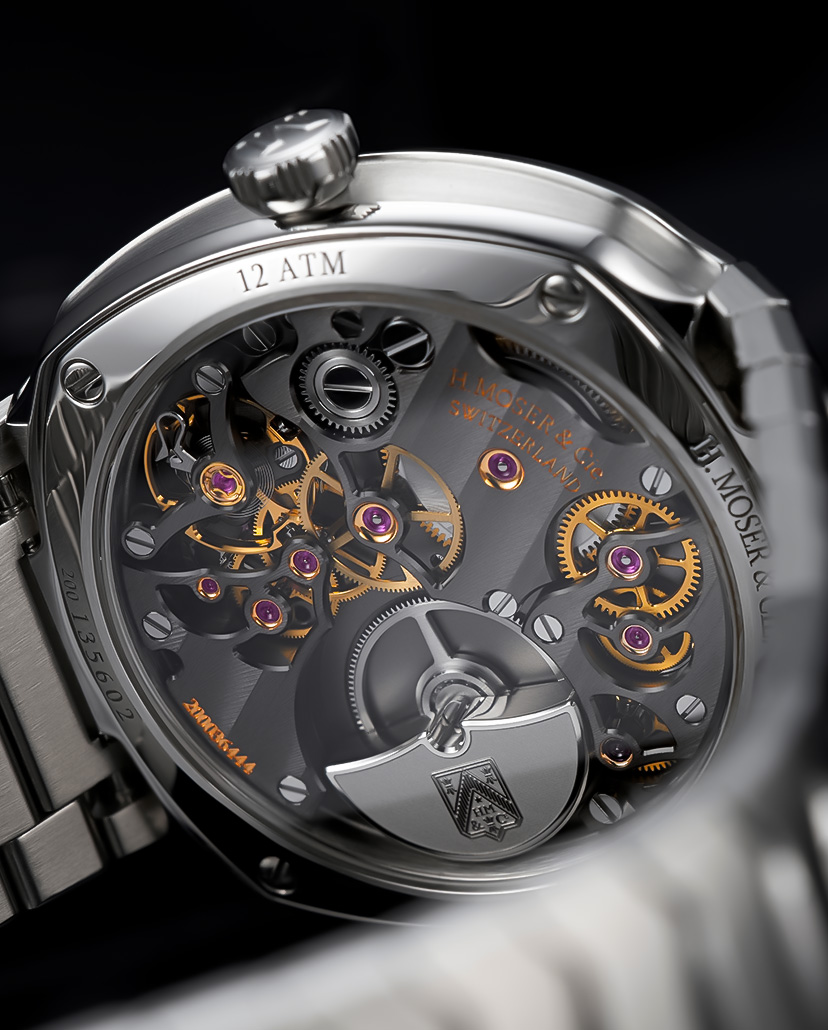
The small seconds on a beautiful enamel face
Flipping back to the dial side of this gorgeous timepiece, you’d see the fantastic texture on the fumé blue dial in enamel. This mesmerising face is achieved through the grand feu enamelling process, carried out on a plate of hammered gold, which creates the texture to begin with. The final colour is achieved by using pigments in three different shades that are washed, crushed and oxidised, fired 12 times, resulting in the ombré effect. Steel, applied indexes complement the central hands, which have inserts of Globolight—a ceramic-based substance, infused with Super-LumiNova. Last, but not the least, the third hand we see is that for the small seconds on a sub-dial at six o’clock, with a snailed finish, in contrast against the rest of the hammered, enamelled dial. All the while, this Streamliner retains the comfort achieved by the integration of the cushion-shaped case and the slinky bracelet, and at 39mm—a very agreeable size—this maybe the most comfortable Streamliner to wear so far.
Moser Streamliner Tourbillon Skeleton
A Skeletal Expression In Minimalism
Moser started this year with a striking update to their Streamliner series at Watches and Wonders, Geneva, with the Streamliner Tourbillon Skeleton timepiece, the brand’s first open-worked dial paired with an integrated bracelet. A true test of Moser’s minimalism, the Streamliner Tourbillon Skeleton watch features a 40mm cushion shaped frame for the elements that constitute the movement and, by extension, its dial. To prioritise legibility on this open-worked timepiece, the mainplate and bridges of the brand’s calibre HMC 814 have been given an anthracite finish that contrasts with rose gold plated hands with Globolight inserts and indexes. To enhance the aesthetics of the open-worked dial, components of the calibre have been diamond bevelled very precisely, and skeletonised further. A skeletonised gold oscillating weight—visible even on the dial side—is a good example of how three dimensionally the 167 components of the movement are arranged.
At six o’clock on the dial is the brand’s one-minute tourbillon with a double hairspring which appears to float with no anchors holding on to it. Contrary to perception, however, there are anchors here—skeletonised bridges with an anthracite finish hold the tourbillon in place. Designed and crafted by H. Moser’s sister company Precision Engineering, the matched hairsprings negate the movement of the point of gravity on each spring when it expands, thereby reducing friction and improving accuracy. The brand had, almost two years earlier in 2022, won a GPHG in the tourbillon category for their Pioneer Cylindrical Tourbillon Skeleton timepiece. And while that timepiece featured a three dimensional cylindrical tourbillon enhancing its visual depth, the way components of this HMC 814 calibre have been arranged gives even the Streamliner Tourbillon Skeleton watch a multi-dimensional aesthetic. Moser may have taken their time with their first fully skeletonised timepiece, but as the Streamliner Tourbillon Skeleton proves, they took the time necessary to do it right.
Moser Streamliner Cylindrical Tourbillon Skeleton Alpine
Race For Aerodynamic Elegance
Soon after they released the Streamliner Tourbillon Skeleton, H. Moser presented another open-worked timepiece in the form of the Streamliner Cylindrical Tourbillon Skeleton Alpine limited edition. Presented in collaboration with Alpine Motorsports F1 team, the Streamliner Cylindrical Tourbillon Skeleton Alpine limited editions are an appropriate tribute to a sport that best offsets the aerodynamic inspiration of the watch. Sized at 42.3mm, the cushion case of the Streamliner Cylindrical Tourbillon Skeleton Alpine edition flows into an integrated rubber bracelet in blue or pink. Polished and brushed finishes of the case are highlighted by the satin finish of the case middle. A gently curved sapphire crystal glass sits over the open-worked dial.
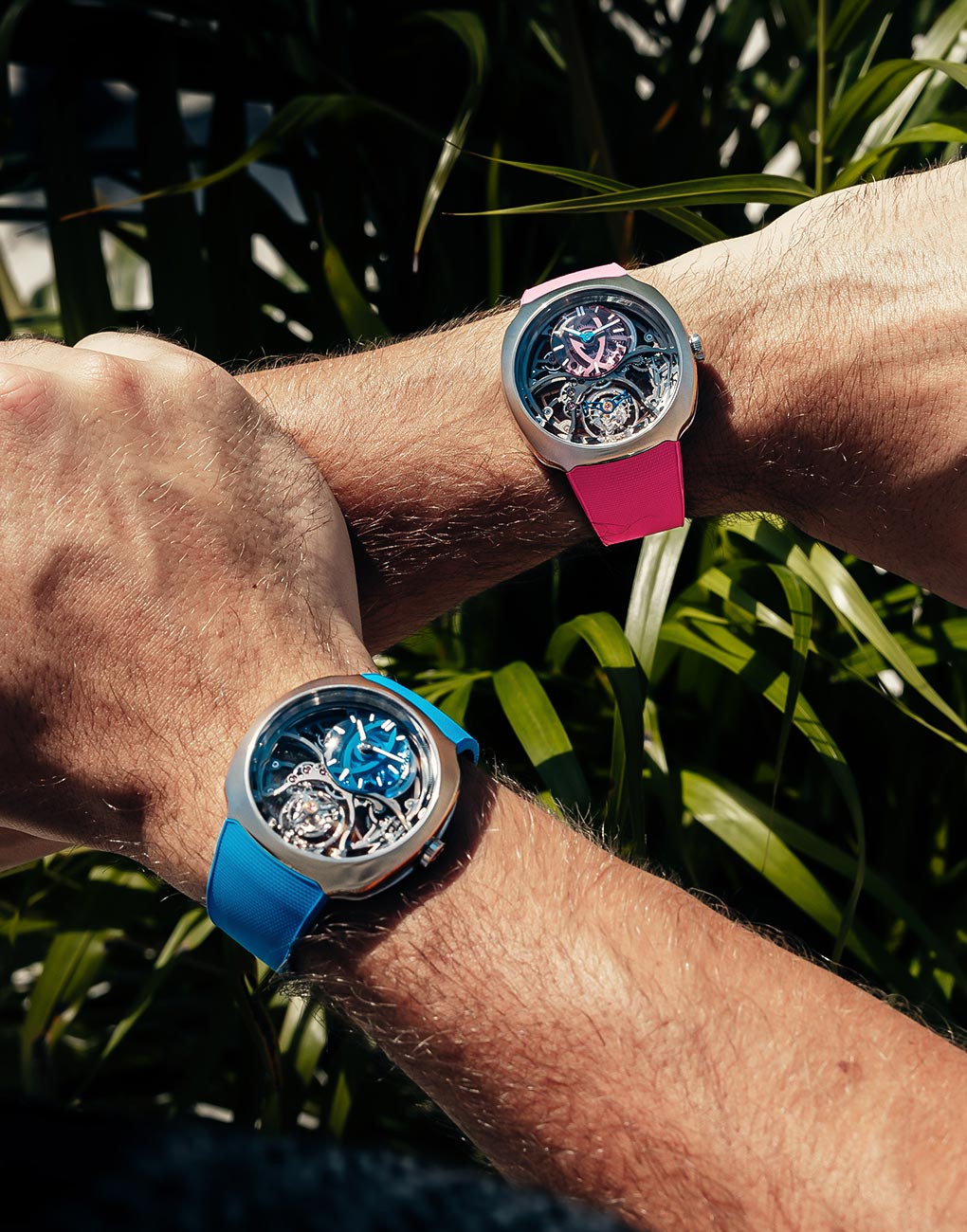
On the dial, the brand’s award-winning three-dimensional cylindrical tourbillon at six is offset by timekeeping sub-dials crafted from synthetic blue spinel and pink corundum. The tourbillon with a cylindrical hairspring and two Breguet overcoils has been created in collaboration with the brand and their sister company Precision Engineering AG. Surrounding the cylindrical tourbillon are skeletonised bridges of the HMC 811 automatic calibre, whose components are—much like the HMC 814 calibre of the Streamliner Tourbillon Skeleton (mentioned above)—arranged beautifully in a multi-dimensional fashion. A skeletonised gold rotor winds the movement and is visible even from the dial side. With no visible branding on the face of these timepieces, it is the beautifully symmetrical movement that stands out on the Streamliner Cylindrical Tourbillon Skeleton Alpine limited editions.
Moser Streamliner Concept Minute Repeater Tourbillon
All Hail The ‘Queen Of Complications’
The latest offering from the house of H. Moser is the Streamliner Concept Minute Repeater Tourbillon watch with the brand’s signature blue grand feu enamel dial featuring the ‘queen of watch complications’ the minute repeater, and a flying tourbillon. With an integrated single-link bracelet flowing from the 42.3mm cushion shaped case, the Streamliner Concept Minute Repeater Tourbillon has been modified to function as a soundbox that perfectly balances volume, resonance and harmony. On the dial side, two curved gongs and raised hammers amplify the chiming of hours and minutes. This delicate twirl accompanies the movement of the flying tourbillon at six o’clock, held in place by skeletonised bridges. Powering this timepiece is the HMC 905 manual-winding calibre, which vibrates at a frequency of 21,600 vibrations per hour, and offers a power reserve of 90 hours. Through the exhibition caseback, the decoration of the movement—double Moser stripes on mainplate and bridges and anthracite finish on the components—can be viewed.
For the backdrop of these two beautiful complications, the brand have chosen their ‘aqua blue’ grand feu enamel, where a pattern is first hammered onto a gold base, before finely crushed pigments are applied, creating an ombré effect. This is then fired 12 times to create the brand’s signature fumé effect. With no branding on the dial, this beautiful textured fumé dial takes centrestage, and structured timekeeping hands feature Globolight inserts.
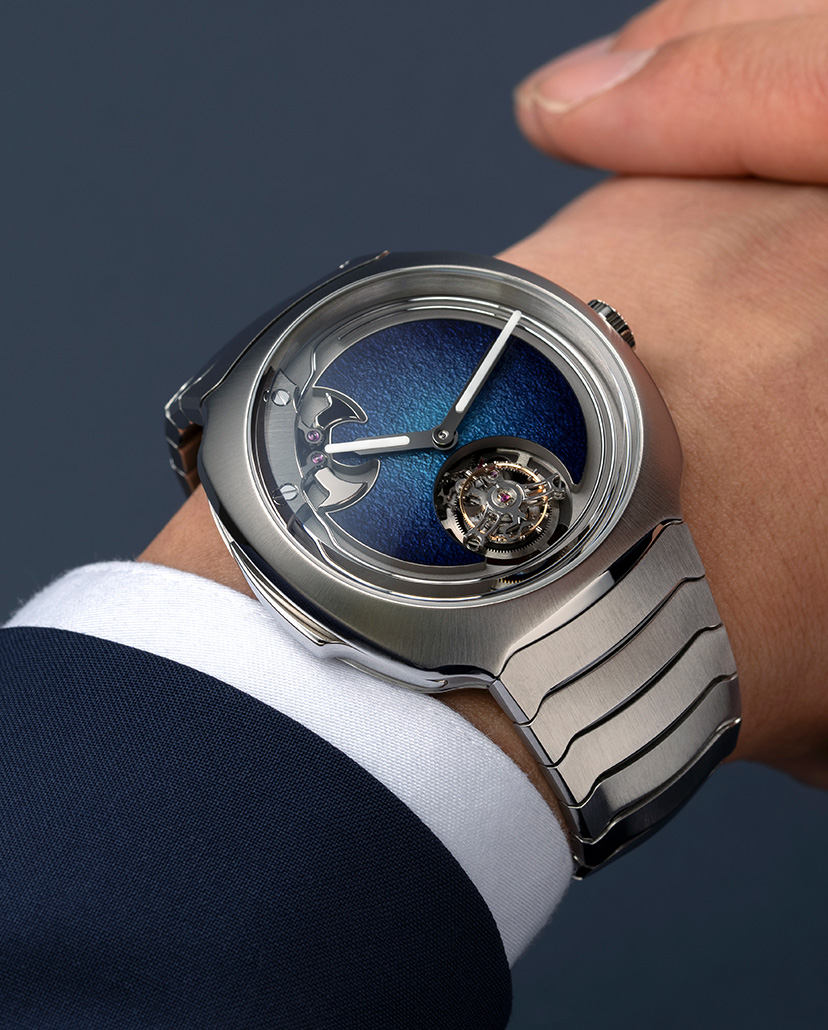
The fluidity of the H. Moser & Cie. Streamliner collection is mirrored in the way the brand ups their own game with every new release. Spanning complications and colour, it’s easy to agree that the Streamliner collection is all but an icon in the making.
